All the new electric cars and concepts revealed at Munich’s IAA Mobility 2025
Munich’s alternative motorshow is now in its third iteration, combining a traditional exhibition space with a conference and large-scale public activations on the streets of the city
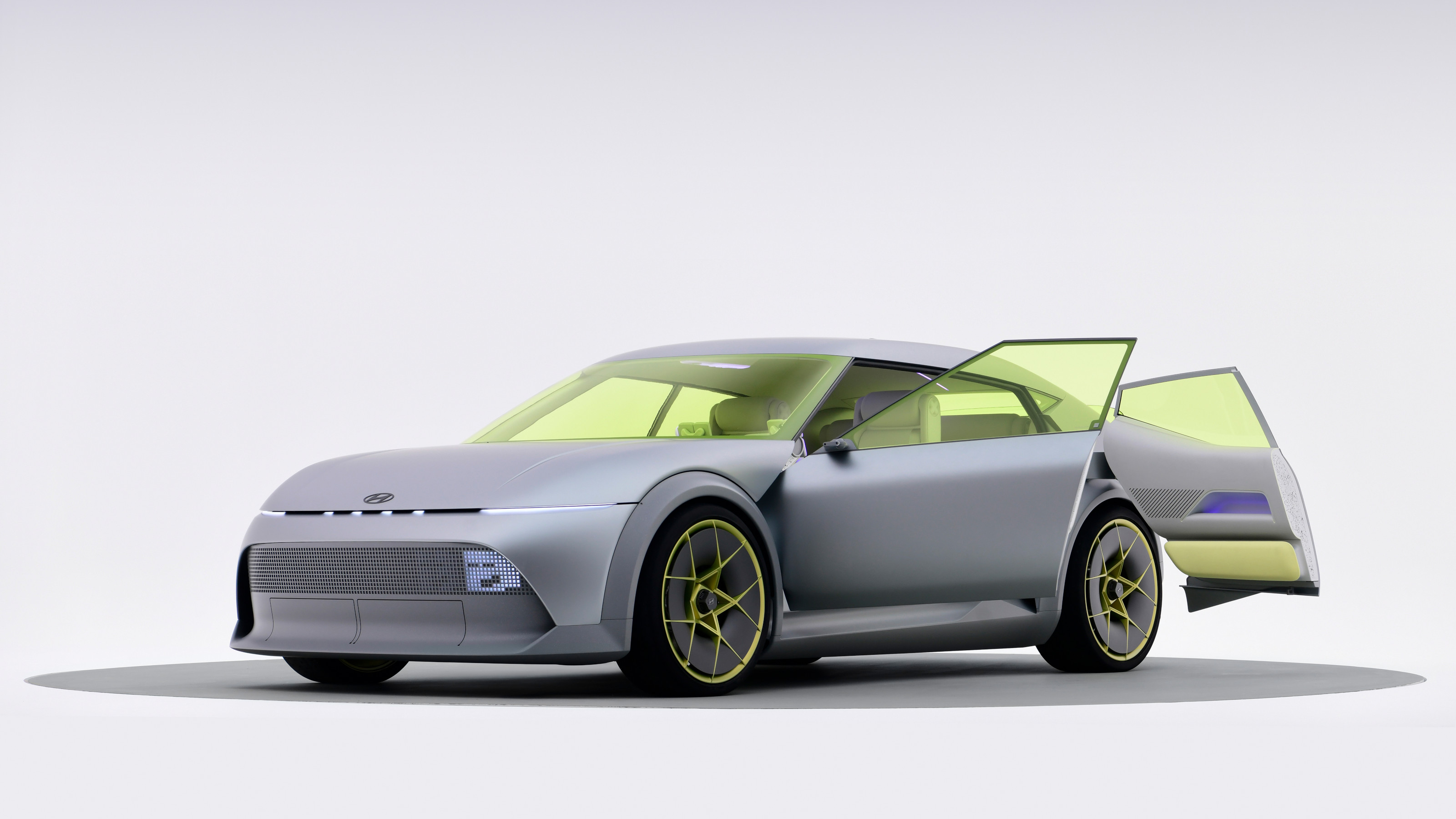
Munich’s IAA Mobility Show is a different kind of motorshow, reflecting the industry’s general shift away from big-budget events that have fallen out of favour with the public. In addition to an IAA Summit for professionals and media, designed to entice big-name manufacturers alongside start-ups, commentators and industry-watchers from all aspects of mobility design, and the regular show stand arrangement, there’s also the IAA Open Space.
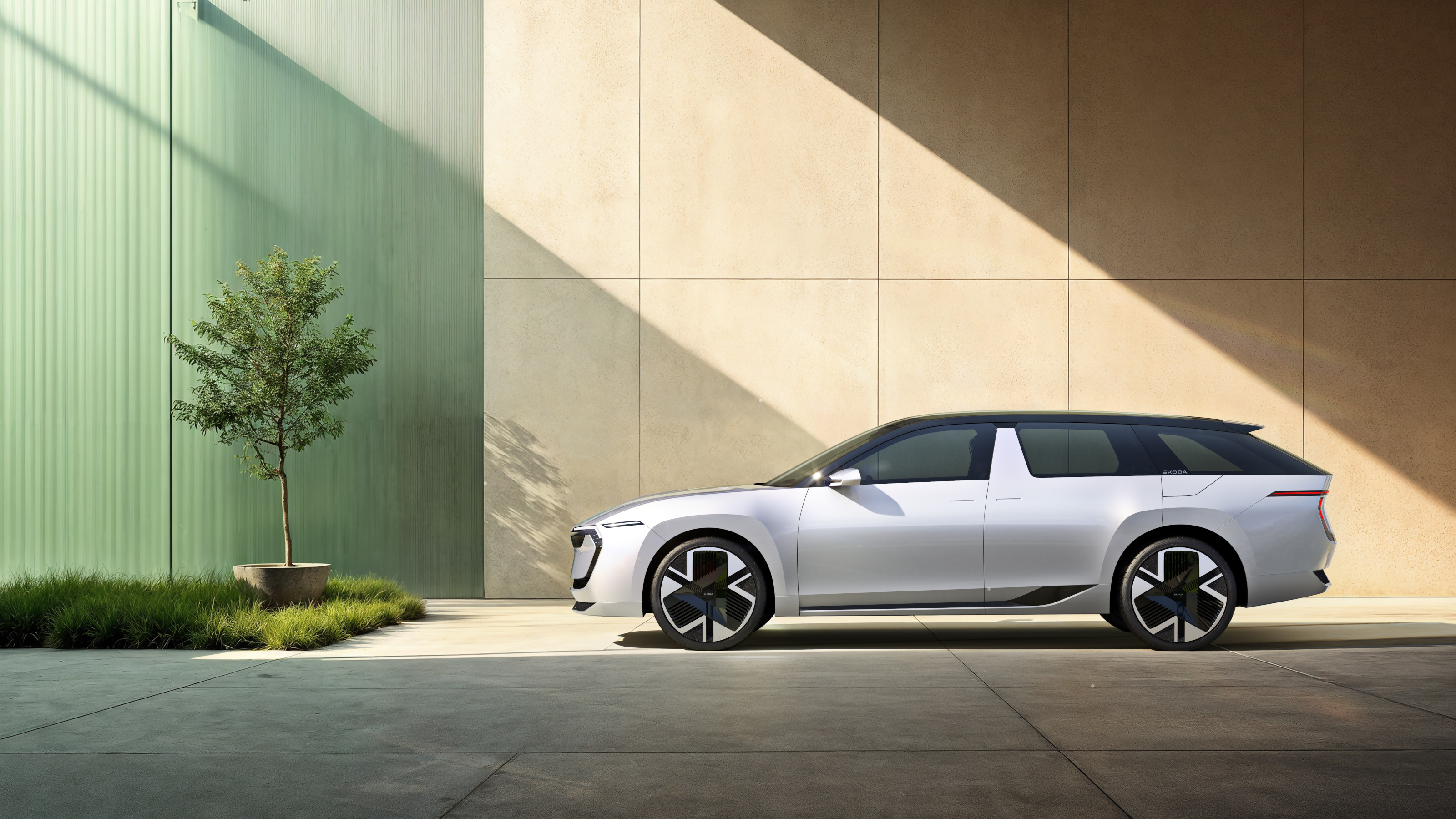
Škoda Vision O concept
The last is an open event for the general public, scattered around the streets, stores and exhibition spaces in the heart of Munich and designed to put new ideas and fresh launches in front of the very people who’ll ultimately end up buying them. The bi-annual event started in 2021, grew more in 2023, and this time around, there were even more manufacturers involved, with major announcements made across the board.
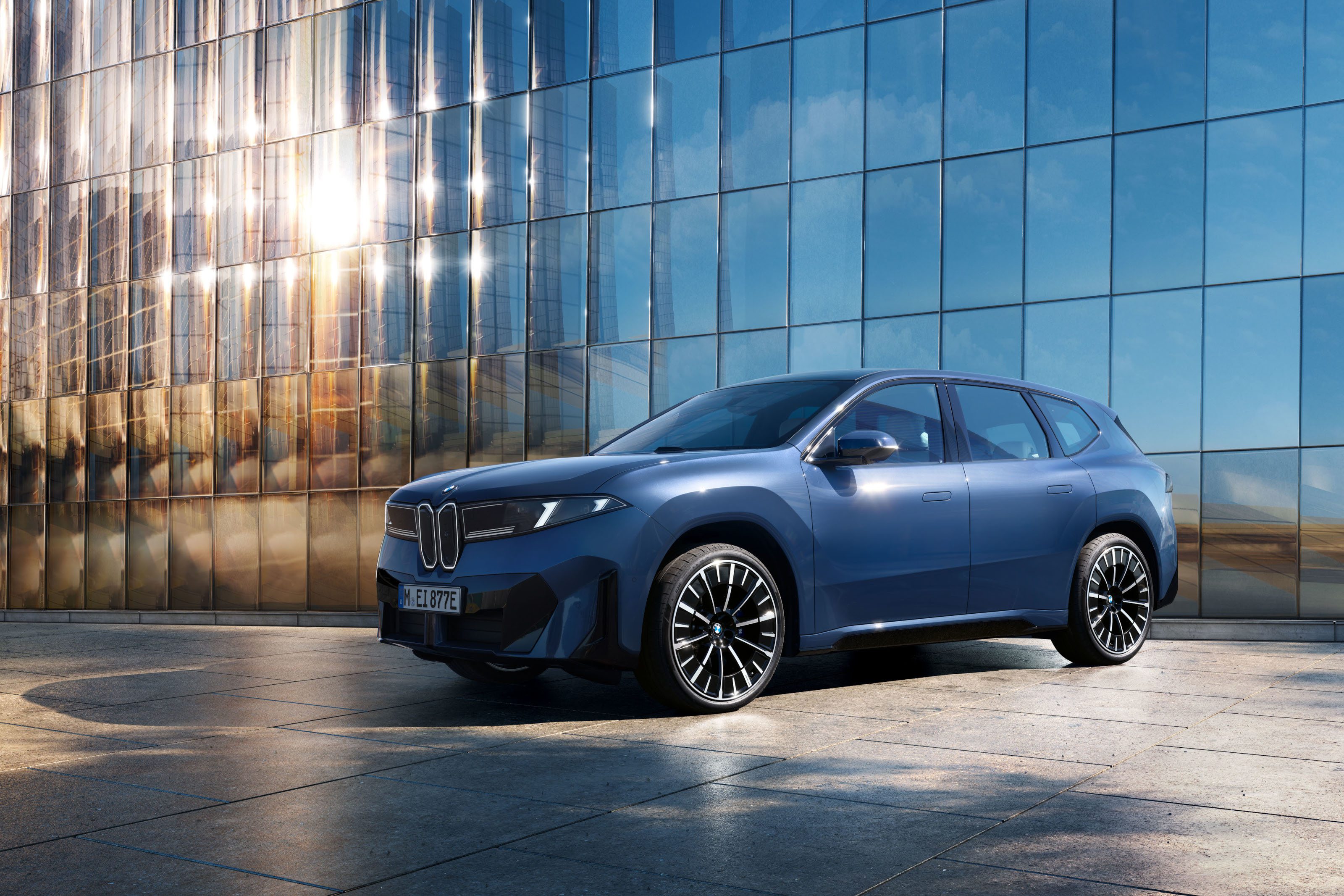
The new BMW iX3
Some of the concepts on show have already broken cover, including the Vauxhall Corsa GSE Vision Gran Turismo and the Audi Concept C, as well as a major activation by Cupra.
Read on to discover our selection of key reveals from the show.
BMW iX3
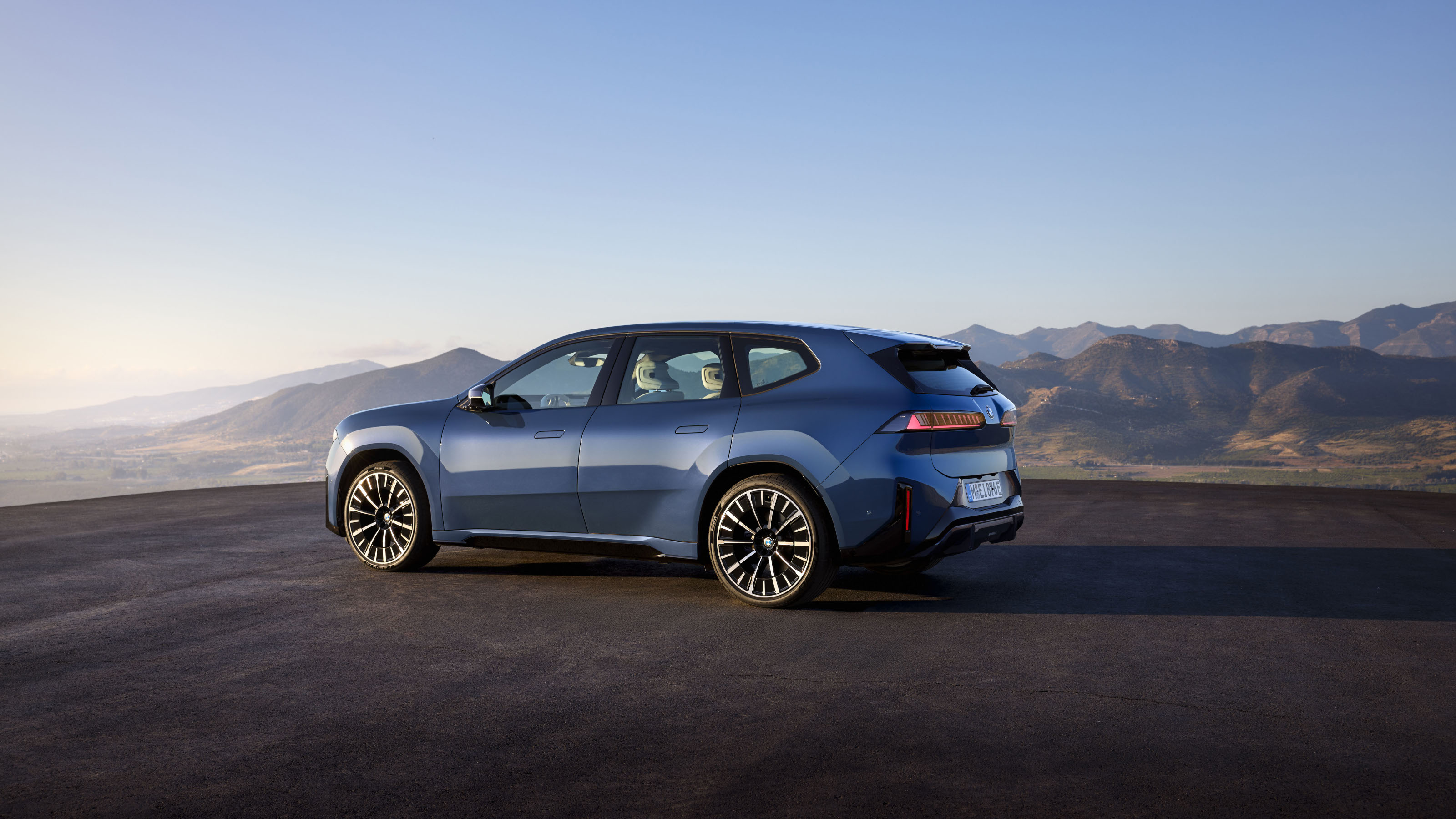
The new BMW iX3
The home-ground advantage was played by all the German manufacturers. Munich is, after all, the home of BMW. To consolidate this status, BMW chose the IAA to launch its ‘Neue Klasse’ iX3, the first production version of a new design language that’s been previewed by a number of concept cars.
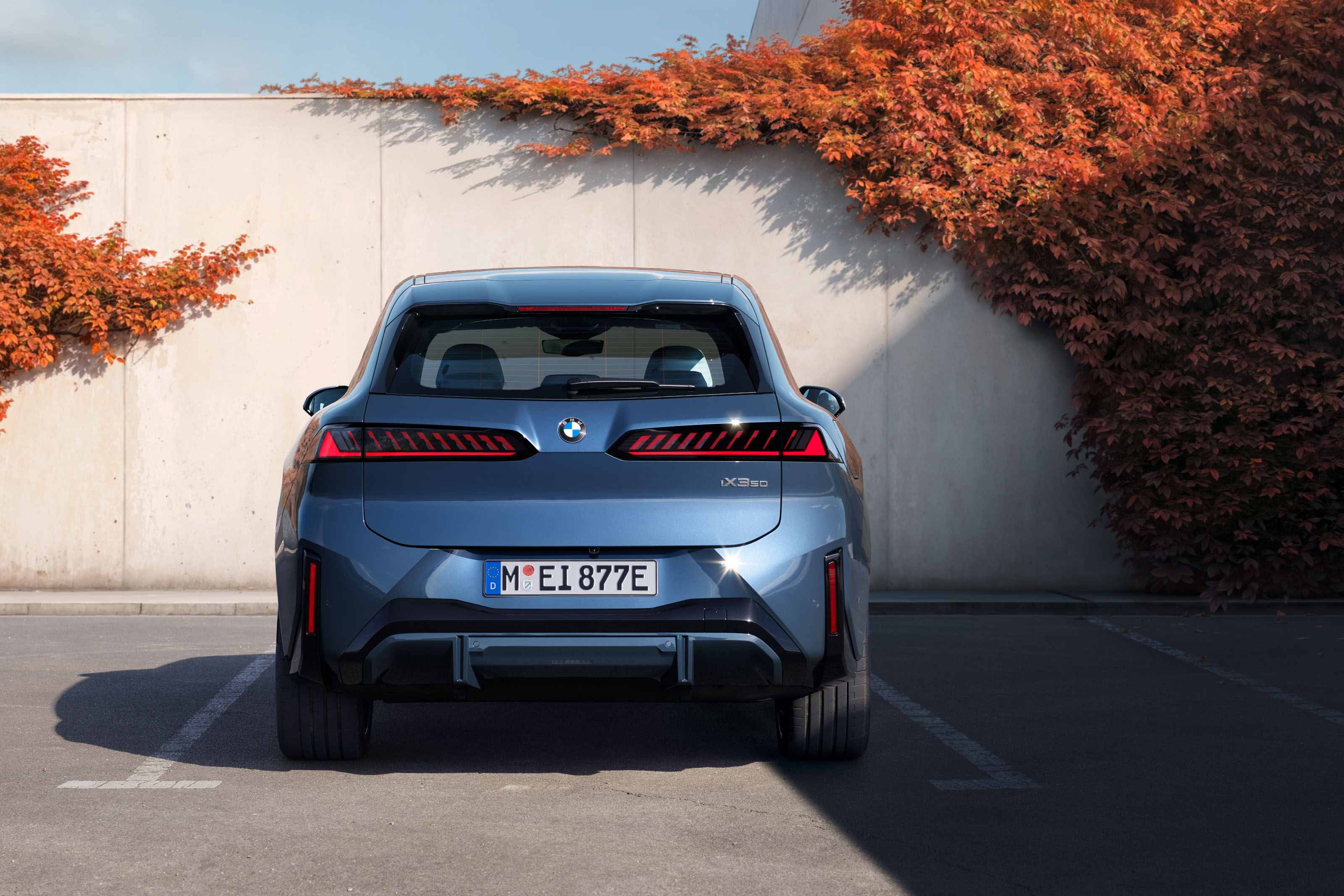
The new BMW iX3
In the metal, this new all-electric mid-sized SUV impresses with its restraint, and the apparent about-face BMW is taking with its signature kidney grilles – once huge, now daintily proportioned. The interior pairs a central touchscreen with a slim, wide display set just beneath the windscreen. There’s more minimalism here as well, especially on the pared-back door trims. With a promised range of up to 500 miles, the iX3 will be one of the first true volume cars to do away with range anxiety altogether.
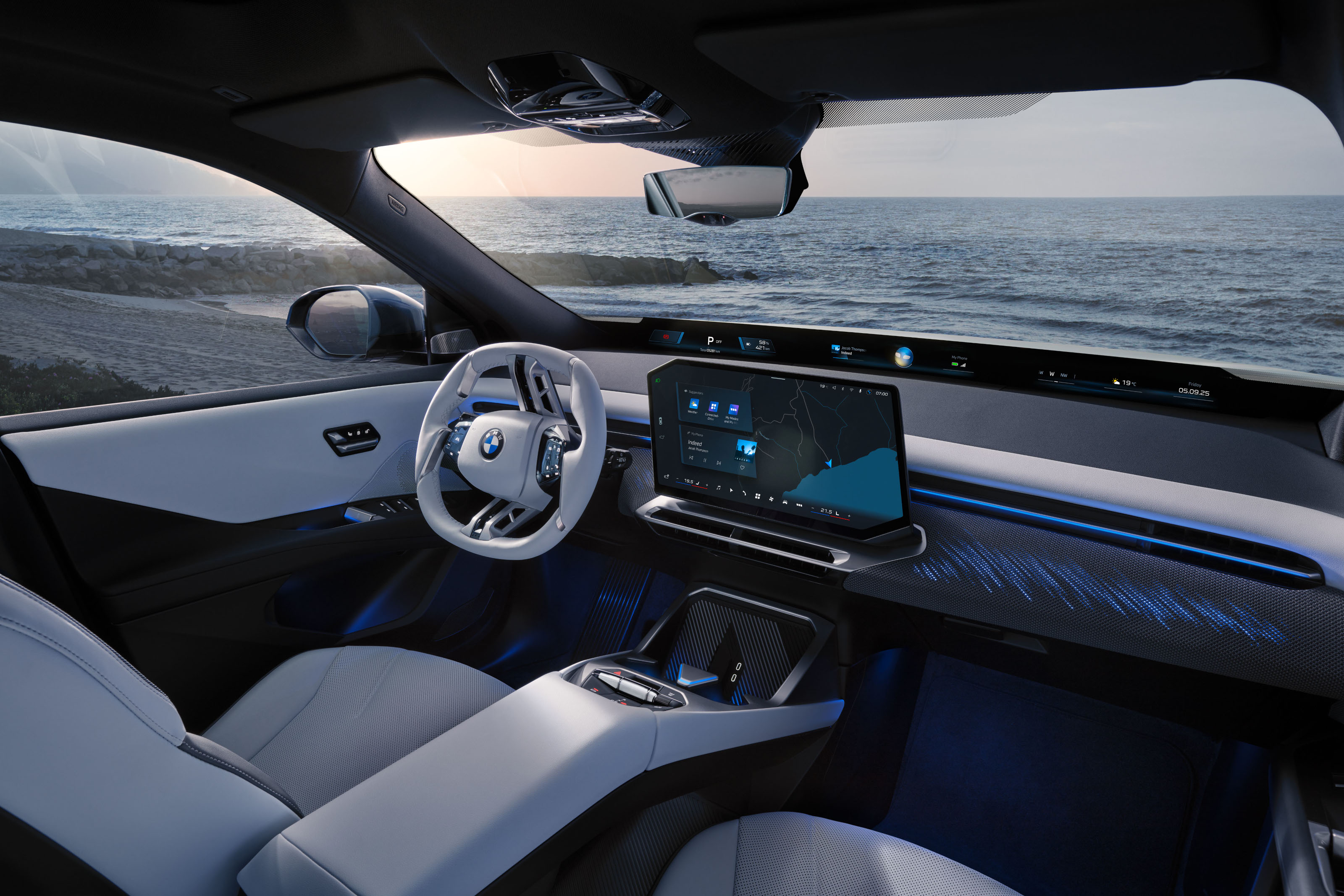
Inside the new BMW iX3
Receive our daily digest of inspiration, escapism and design stories from around the world direct to your inbox.
Volkswagen
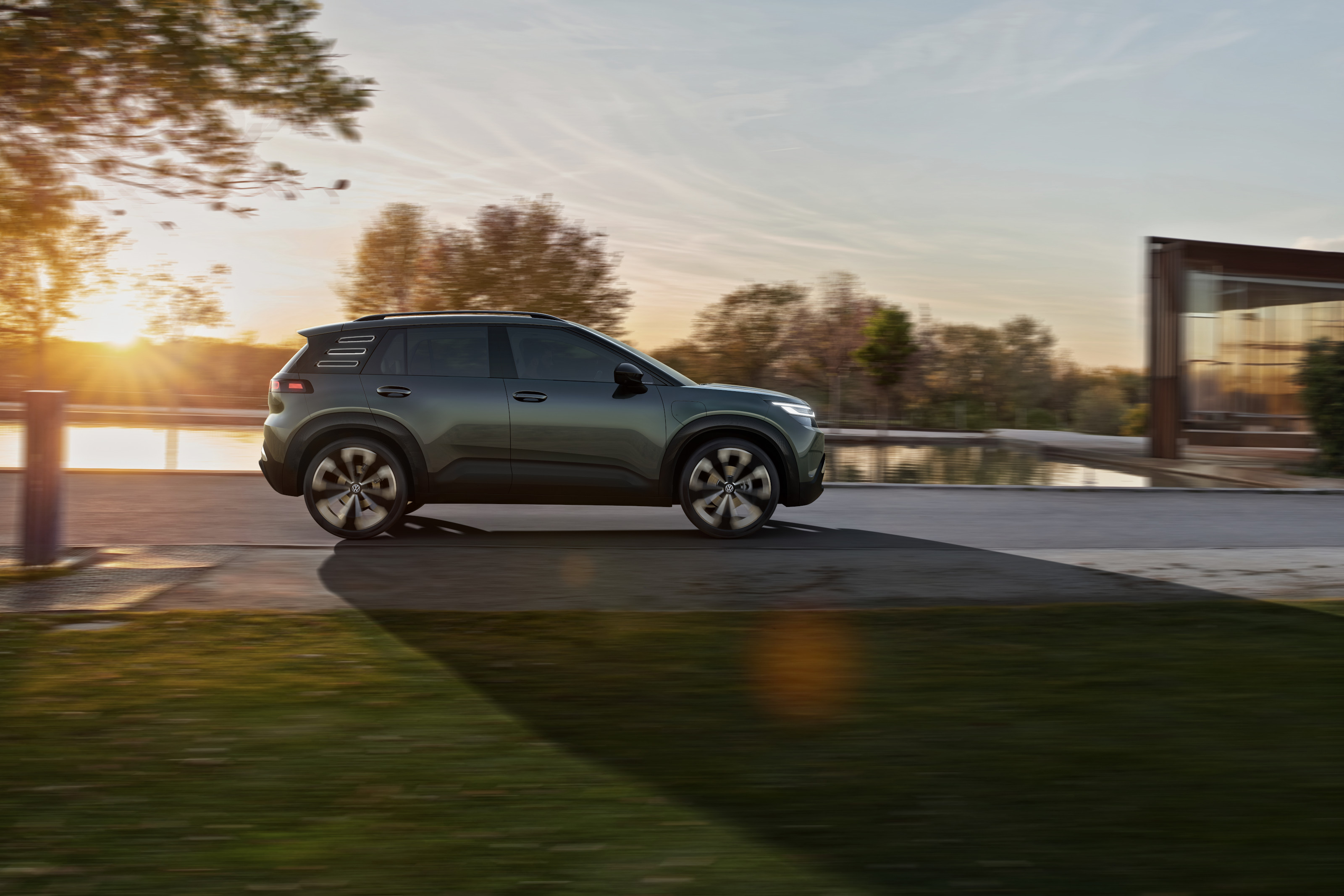
Volkswagen ID X Concept
VW also had a slew of major announcements up its sleeve, both for the main Volkswagen brand and for wider activity in the VW Group. In addition to cementing the existence of a compact ‘Electric Urban Car Family’, featuring distinct but related models from Volkswagen, Cupra, and Škoda, all priced from around €25,000, VW also doubled down on a new naming strategy.
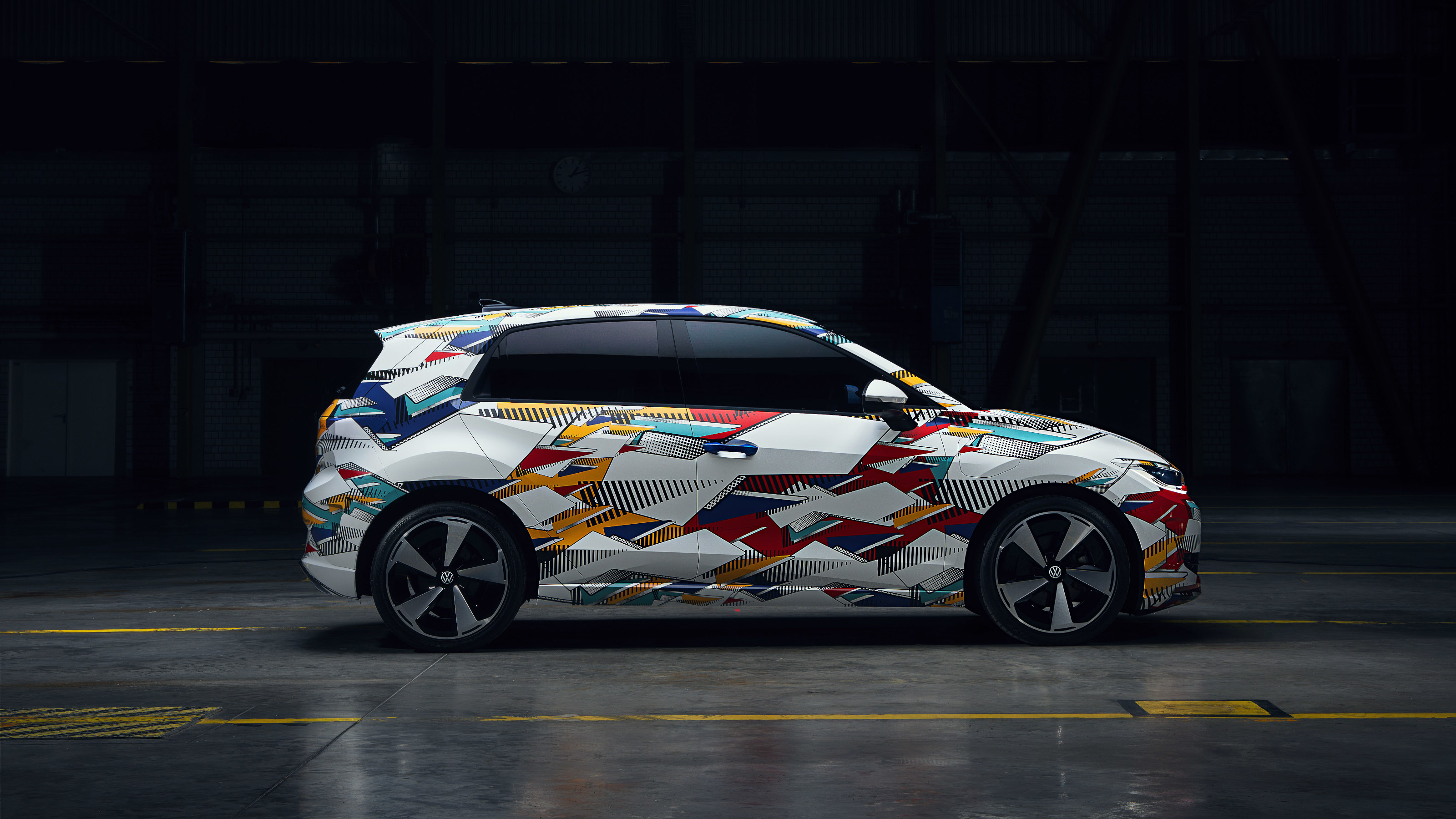
Volkswagen ID Polo
Turns out that the ID. name plate will no longer be the only sign of a pure VW EV. As of 2026, what would have been the ID.2 will now be known as the ID.Polo, with ID.Golf to follow. The realisation that these classic model names, with their decades of history and loyal following, could simply be taken into the electric era seems like a no-brainer – the only surprise is that it took VW so long to realise.
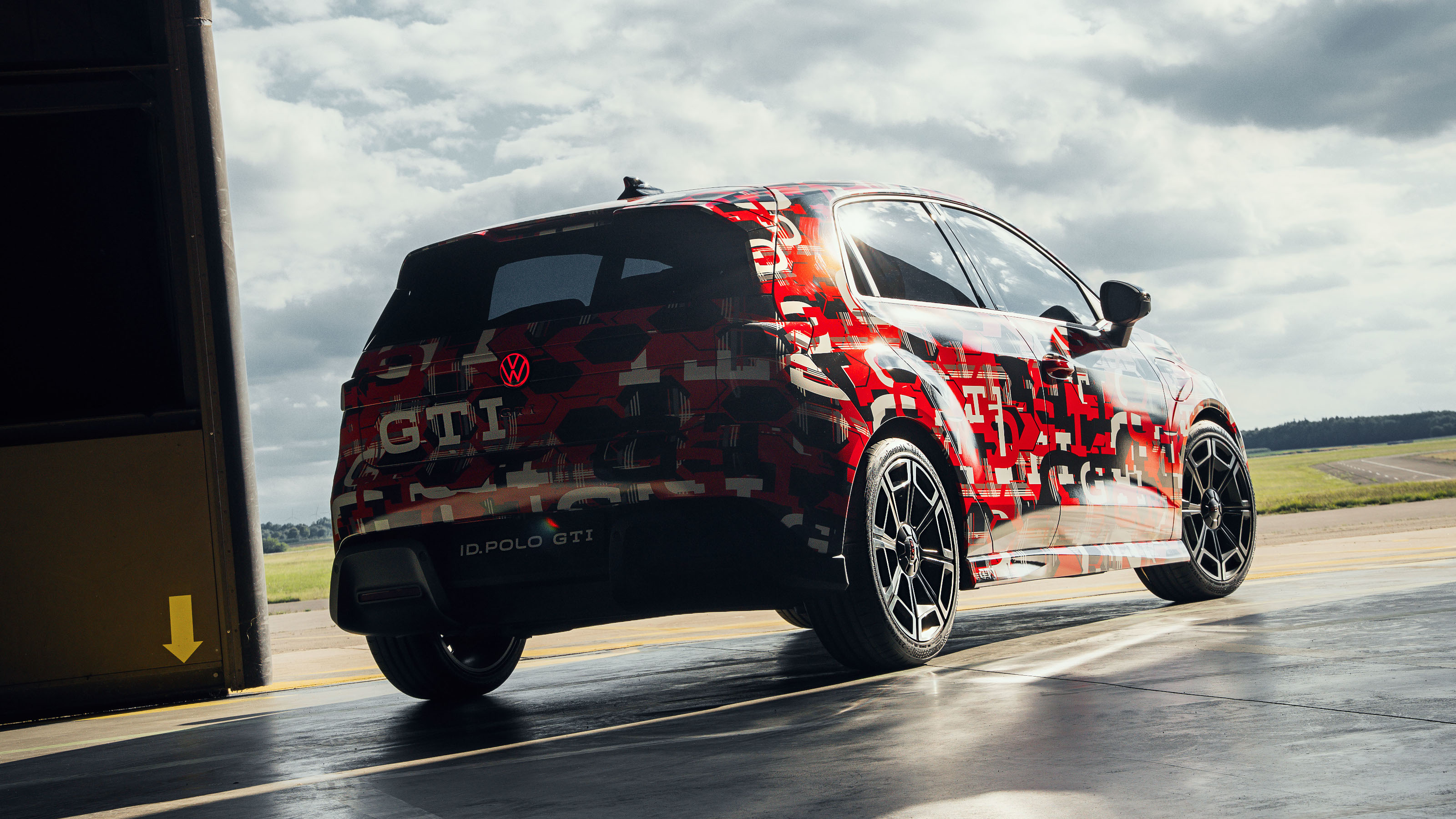
Volkswagen ID Polo GTI
The ID.Polo, along with its GTI sibling, were both shown at IAA – albeit still in camouflage – along with the ID.Cross concept, a compact urban SUV. Both slot into the Electric Urban Car Family announced above, alongside the Cupra Raval and Škoda’s Epiq.
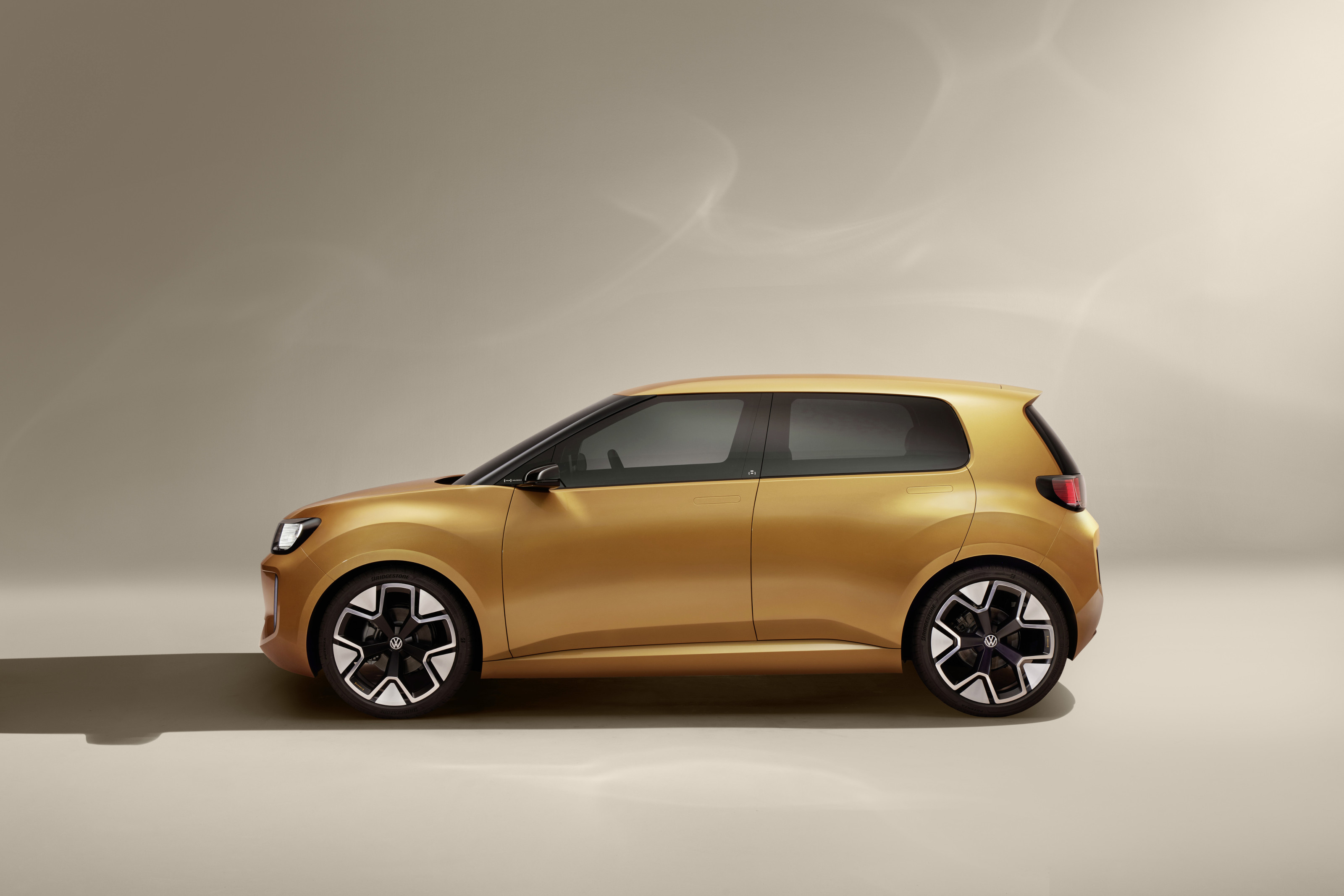
Volkswagen ID.Every1
VW also showed the newest version of the popular T-Roc, another compact SUV. Finally, there was the ID.Every1, a concept with the task of bringing VW back into the ultra-compact urban car category like classic older models such as the Lupo and the Up!.
Porsche 911 Turbo S
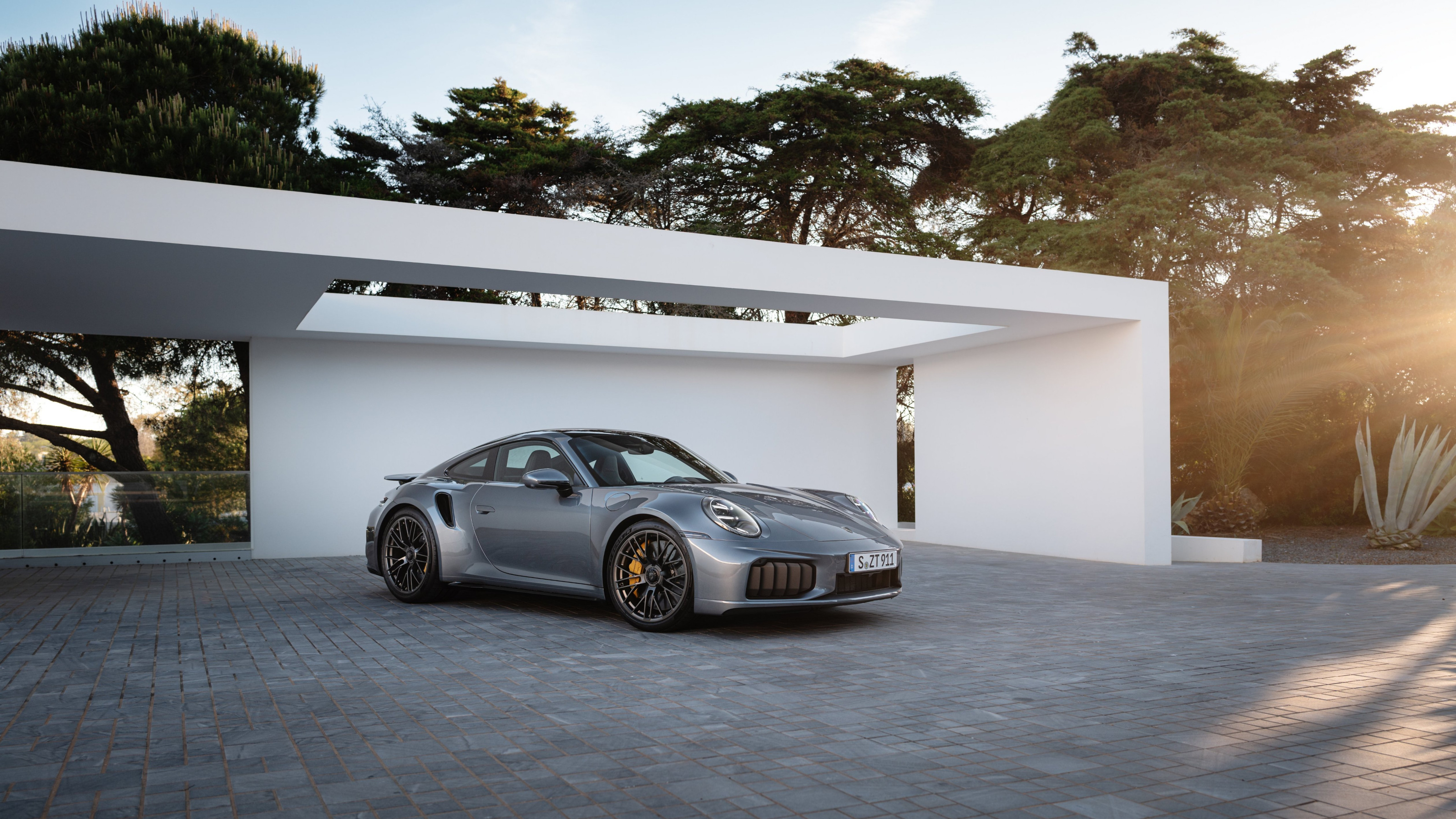
Porsche 911 Turbo S
Porsche presented its new flagship 911, the 911 Turbo S. A legendary name, this latest version of the evergreen sports car goes heavy on the tech. Power output is at record levels (711 PS), thanks in part to a T-Hybrid powertrain that incorporates two electric exhaust gas turbochargers. There’s also all-wheel drive and an EV-bothering 0-62mph sprint time of 2.5 seconds.
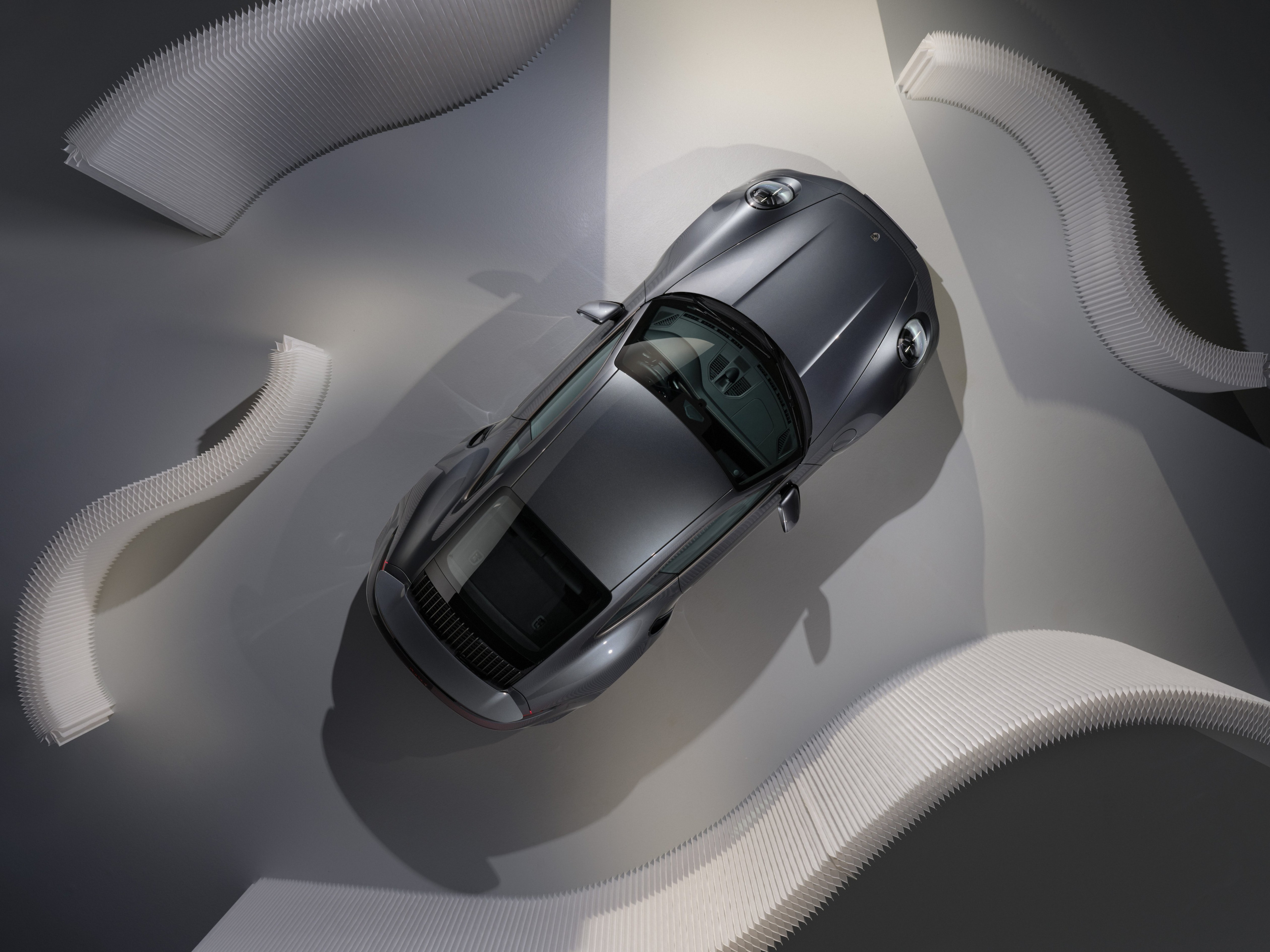
Porsche 911 Turbo S
Like all 911s, the new Turbo S is designed to be easy to live with, combining that massive power with a spacious cabin, great sightlines and a colossal breadth of dynamic ability, from everyday use about town to the challenge of the track.
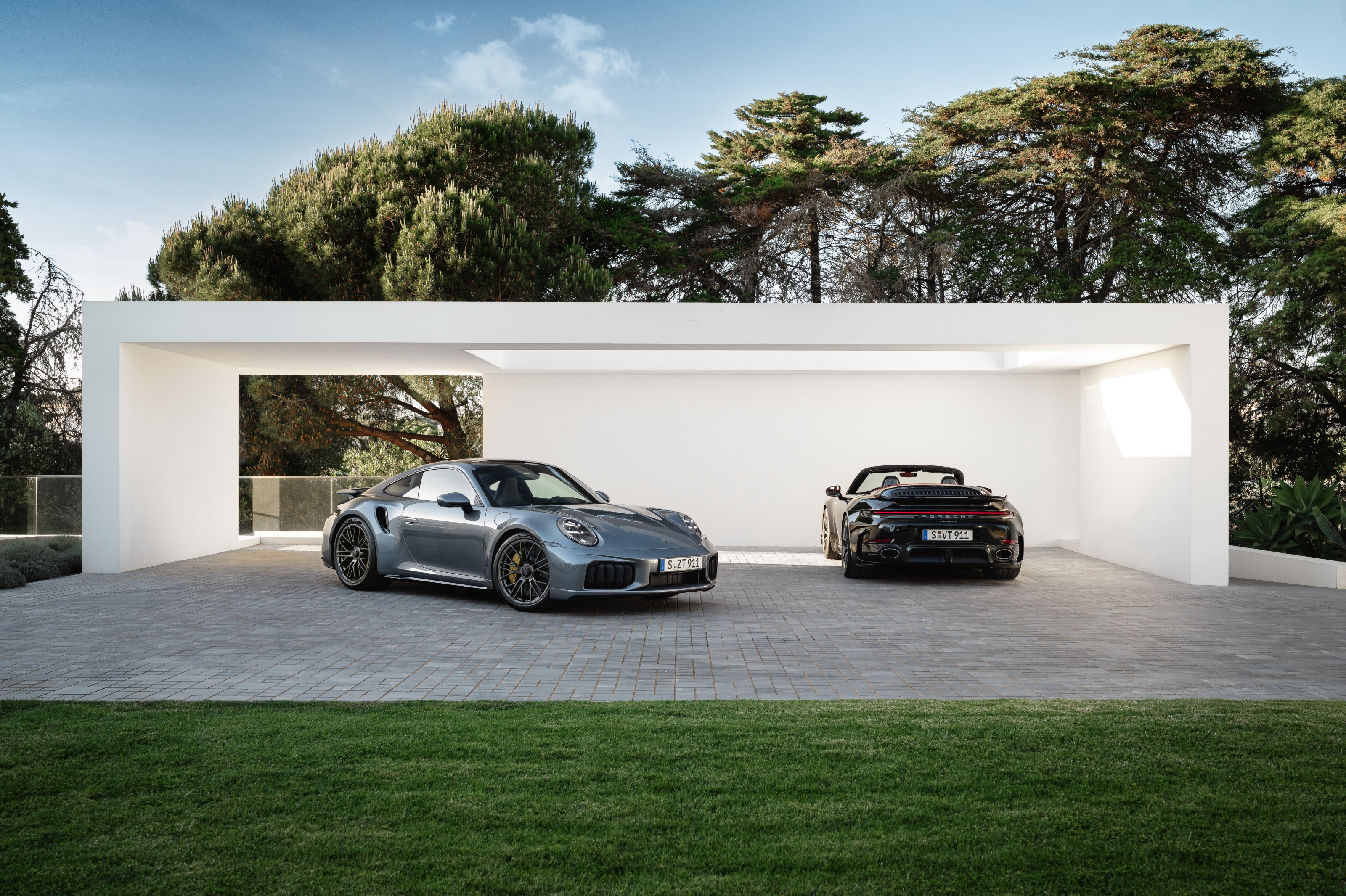
Porsche 911 Turbo S, coupe and cabriolet
Mercedes-Benz GLC
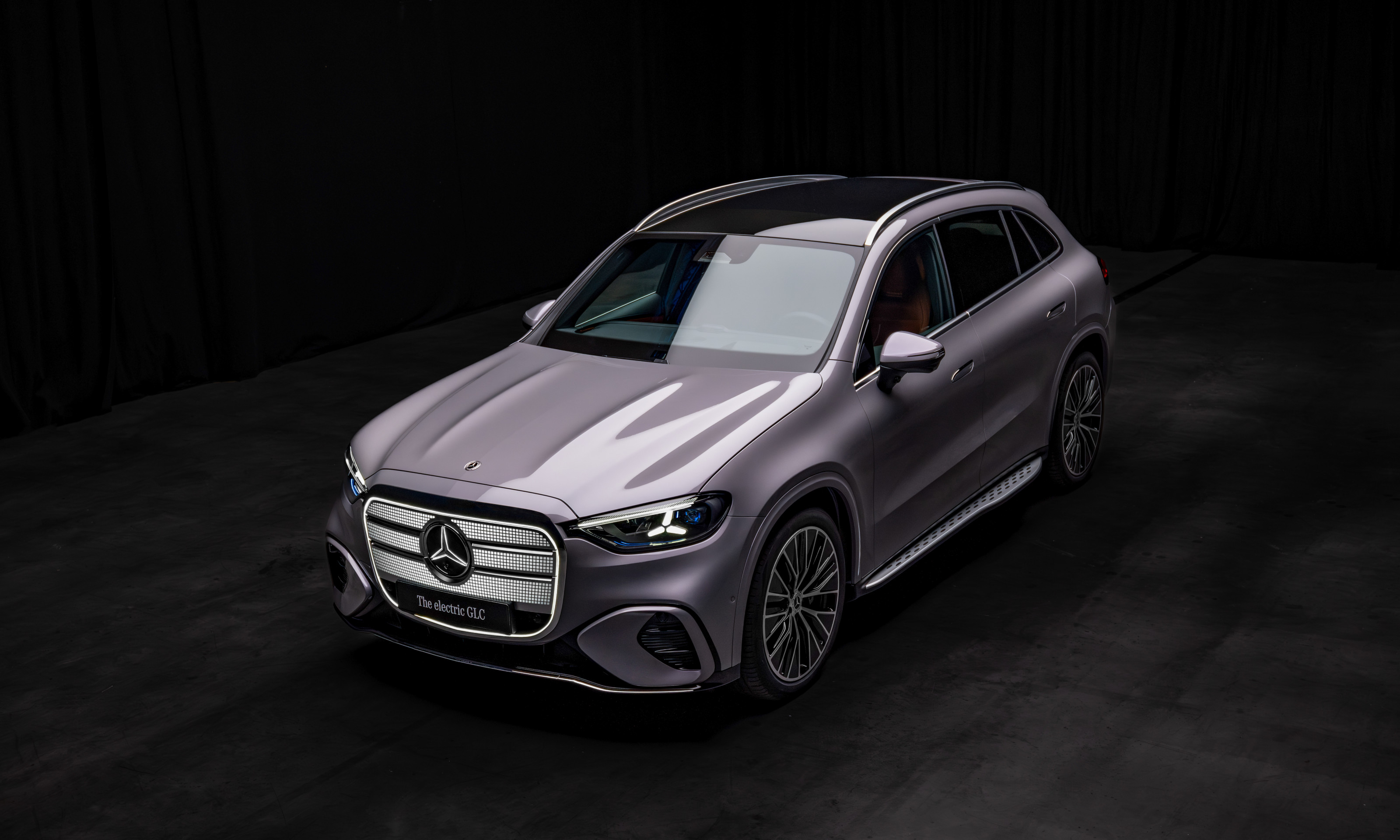
Mercedes-Benz GLC
Another big reveal came from Mercedes, which countered BMW’s iX3 with the new version of its equivalent model, the GLC. The all-electric Mercedes-Benz GLC with EQ Technology (the car’s official name) also demonstrates a company rowing back from the idea of separate lines of ICE and EV cars. The first GLC was introduced back in 2015 and a decade has truly transformed the model.
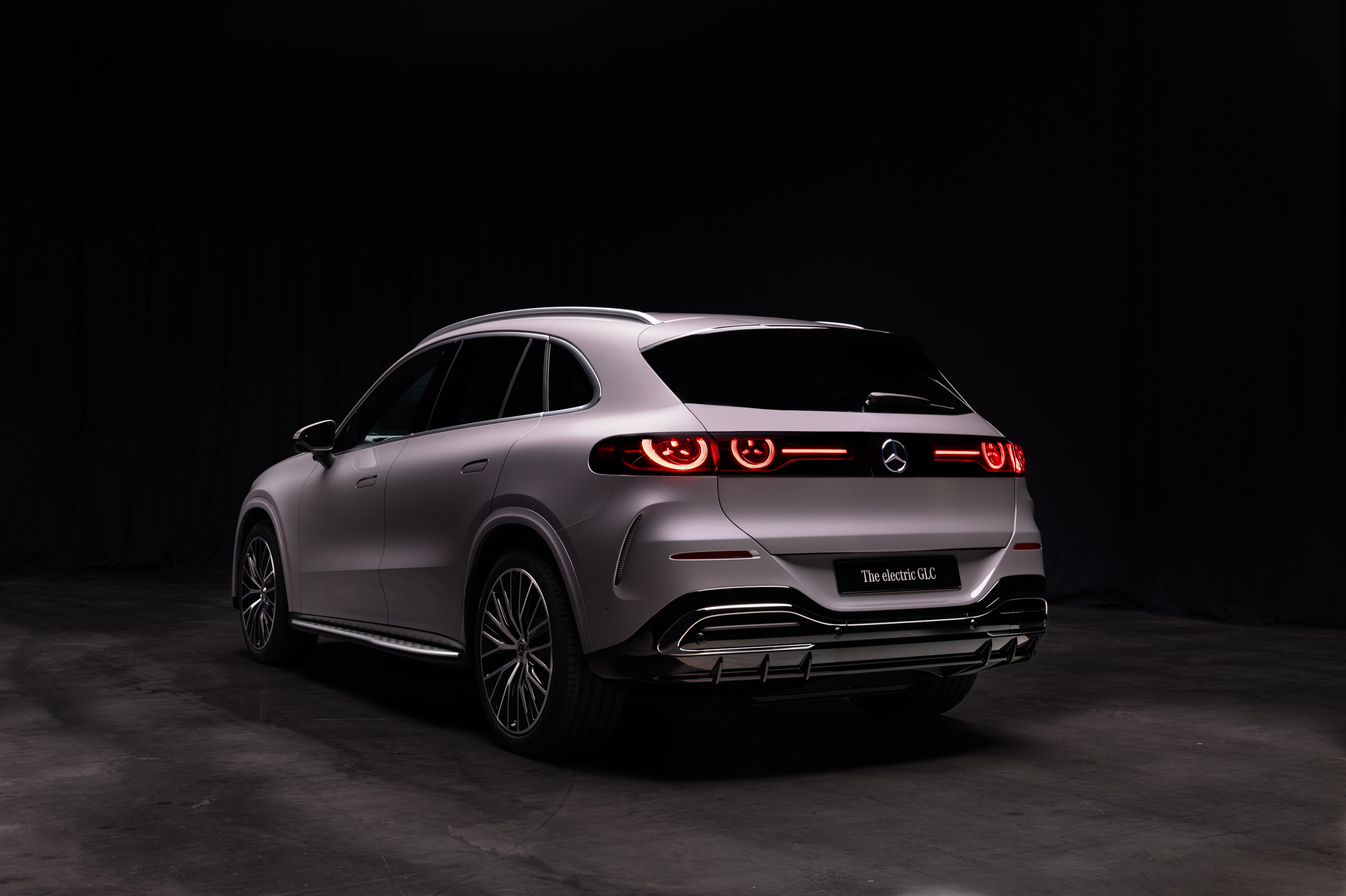
Mercedes-Benz GLC
Instead of its rather lumpy forebears, the newest GLC is relatively slim in profile for an SUV, with neat rear-light treatment. The big grille rather lets the ensemble down – no lessons learned from BMW’s vogue for shrinking front-end graphics. Inside, Mercedes is still wedded to vast displays with the latest iteration of the dash-devouring MBUX Hyperscreen.
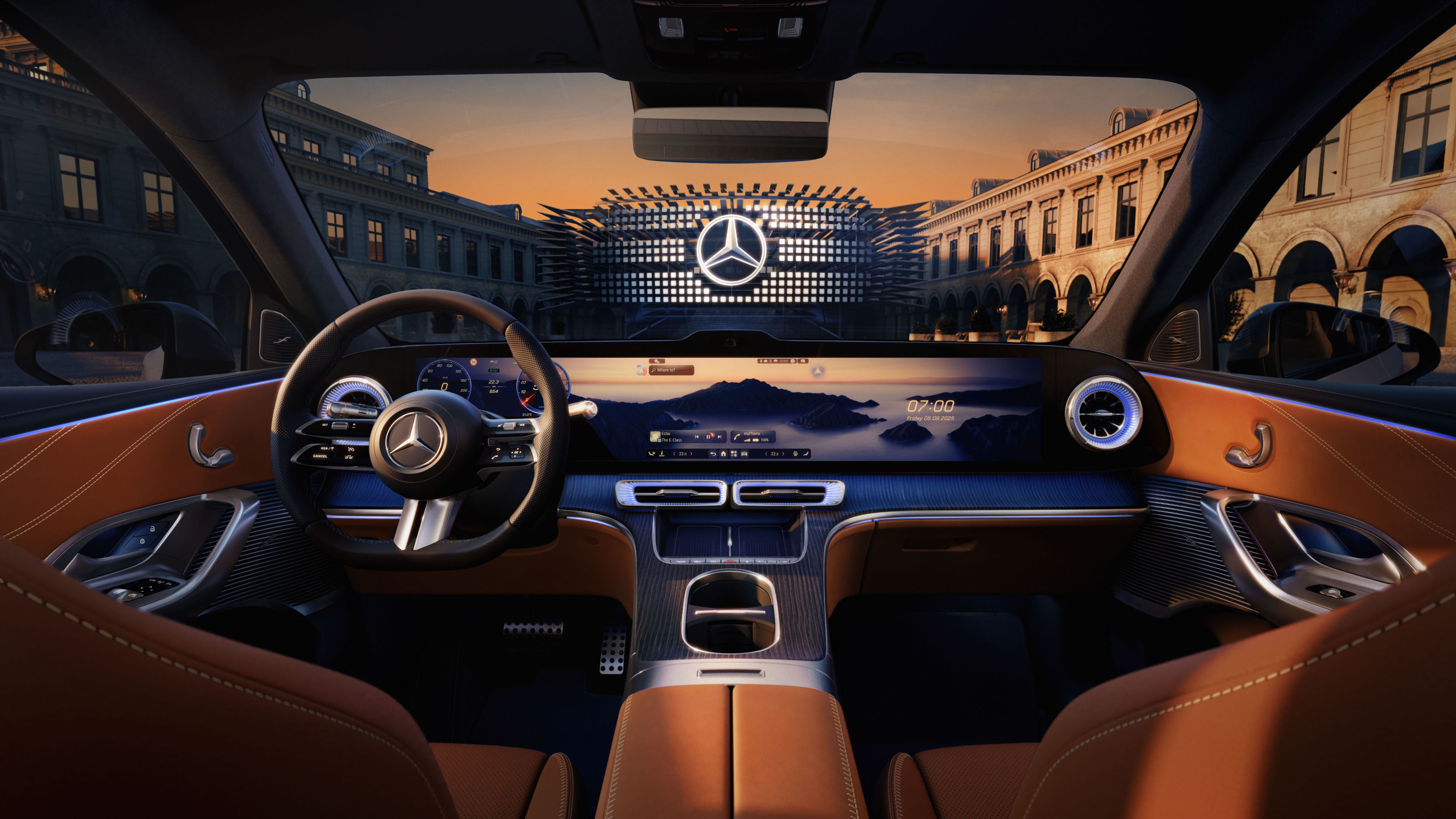
Mercedes-Benz GLC with the latest iteration of the Hyperscreen
The car’s operating system uses a so-called multi-agent approach, taking the best bits of AI from both Google and Microsoft. As a result, Mercedes claims that ‘for the customer, talking to the MBUX Virtual Assistant is like chatting with a friend – it can provide detailed responses and answer follow-up questions without the need to repeat context’.
Mercedes-Benz.de, @MercedesBenz
Avatr Vision Xpectra concept
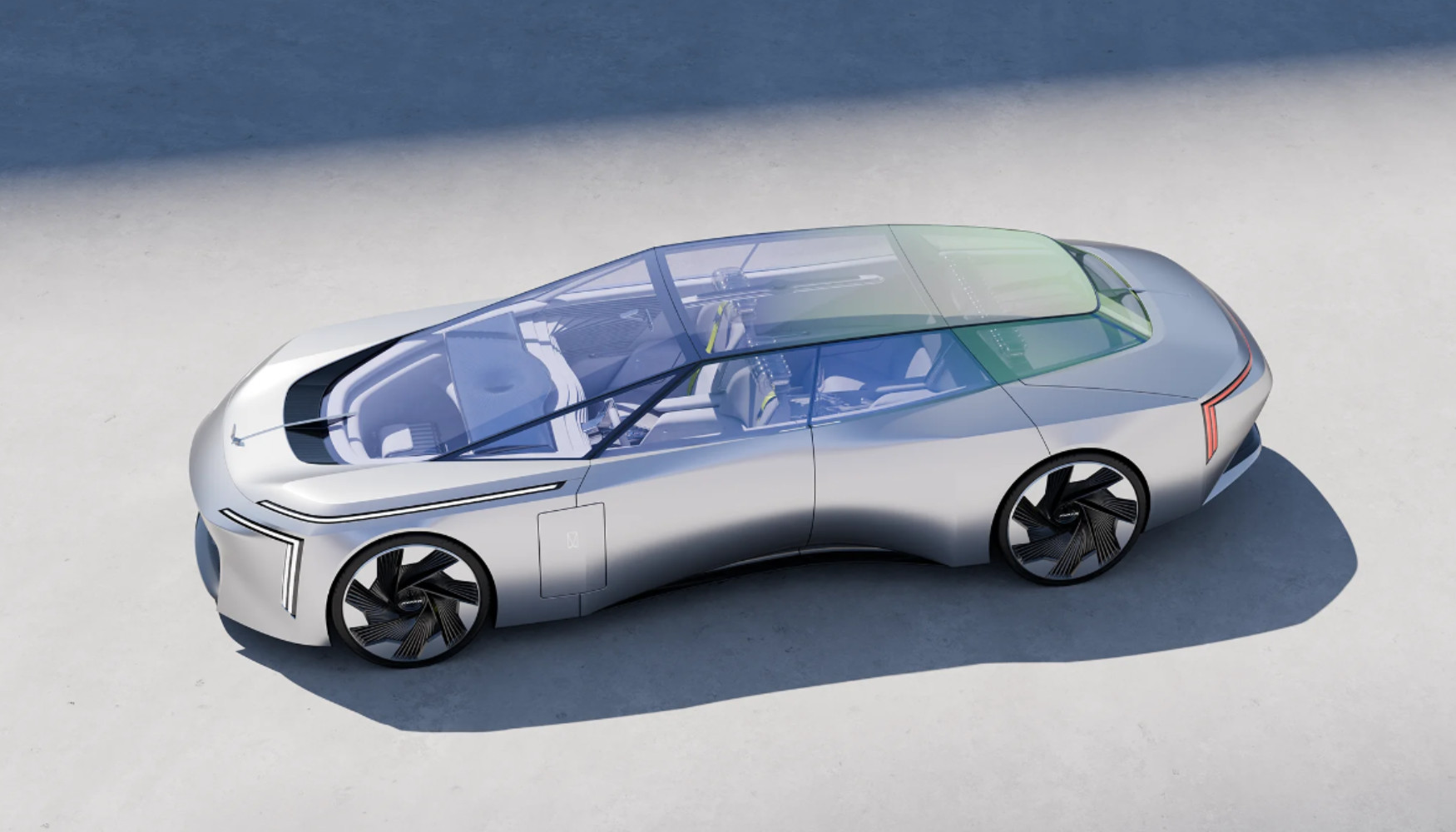
Avatr Vision Xpectra concept
There were also plenty of Chinese brands represented, marked a fresh wave of new metal intended to increase the country’s Western market share. New models from Leapmotor, Deepal, GAC and Dongfeng included the GS7 SUV, with its quirky animated headlights, the Aion UT, as well as the arrival of Dongfeng’s new Forthing sub-brand in Europe and the Huawei-owned Aito brand, which showed three new crossover models.
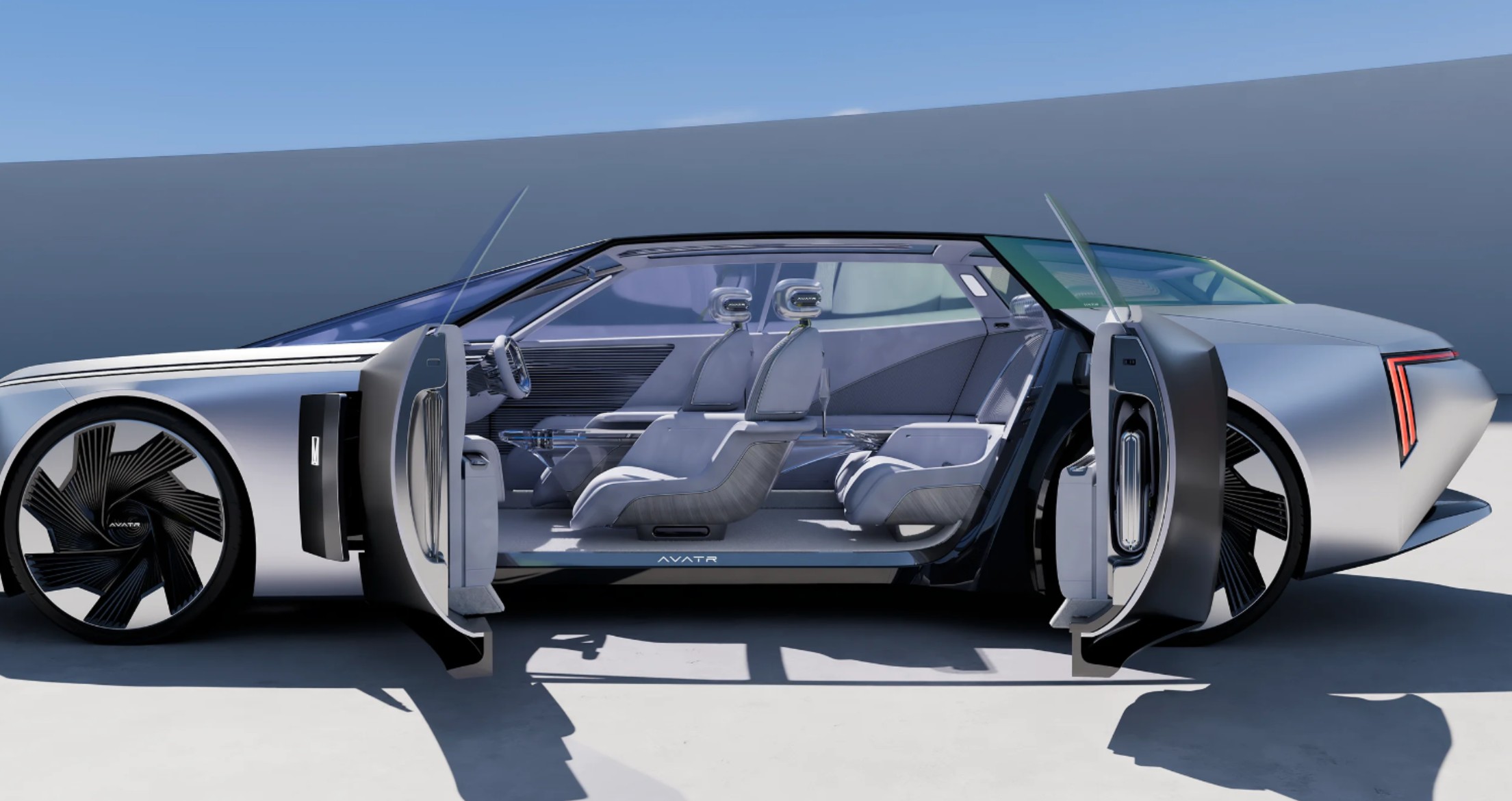
Avatr Vision Xpectra concept
Our attention was grabbed by Avatr’s dramatic Vision Xpectra, a vast new concept created by this sub-brand from Changan Automobile to express what it calls ‘emotive luxury’.
As well as the sheer scale of the 5m-plus limousine, with its near fully-glazed upper body, there’s a wealth of technology crammed into the interior, much of which is controlled via a VPA (Virtual Personal Assistant), the latest must-have for modern cars. Shown alongside production models, including the Avatr 06, 07, 11 and 12, the Xpectra is a bold statement of intent.
Polestar 5
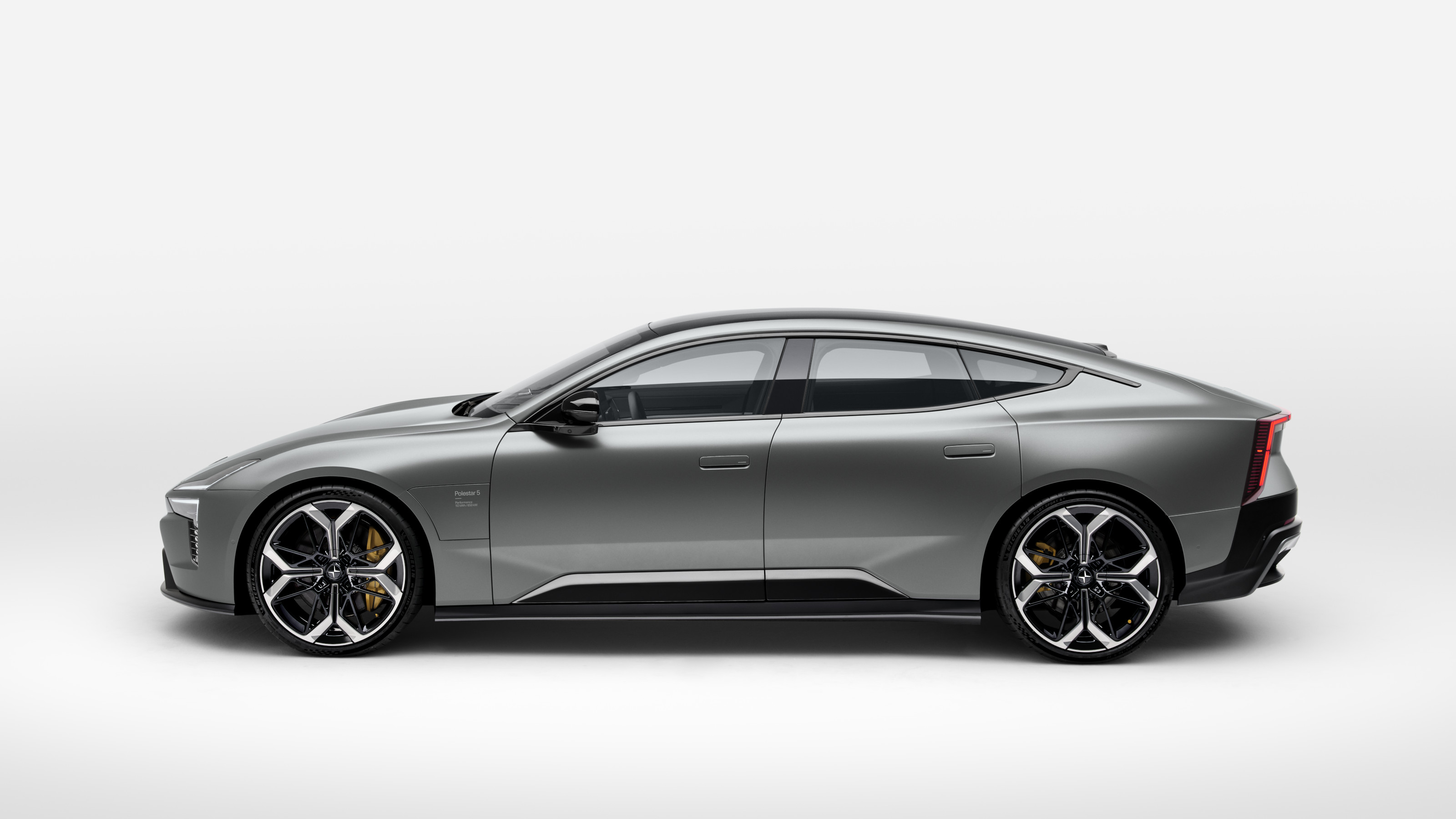
The production-ready Polestar 5
Polestar finally revealed the production version of the long-awaited Polestar 5 at Munich. As the EV company gets closer and closer to completing its projected line-up, the arrival of the 5 marks the most premium Polestar yet, with the Performance model starting at £104,900 for the Launch Edition.
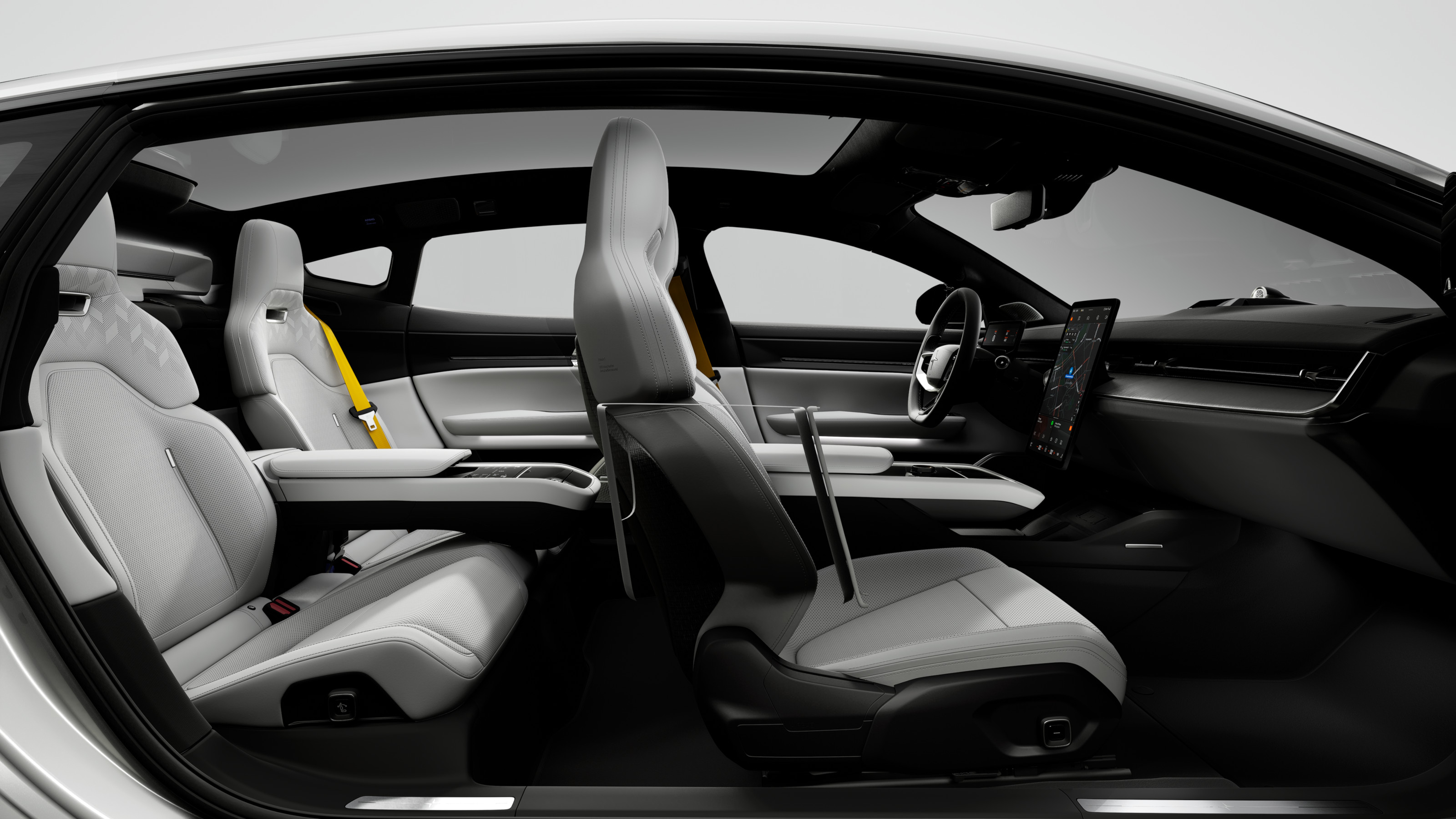
Inside the Polestar 5
Based on the original 2020 Precept Concept, the Polestar 5 is described by the company as a ‘performance grand tourer’. The dual motor model should be good for around 400 miles of range, whilst the rapid Polestar 5 Performance is rated at 351 miles. At 5m in length, the Polestar 5 is limousine-sized, with rear space and accoutrements to match.
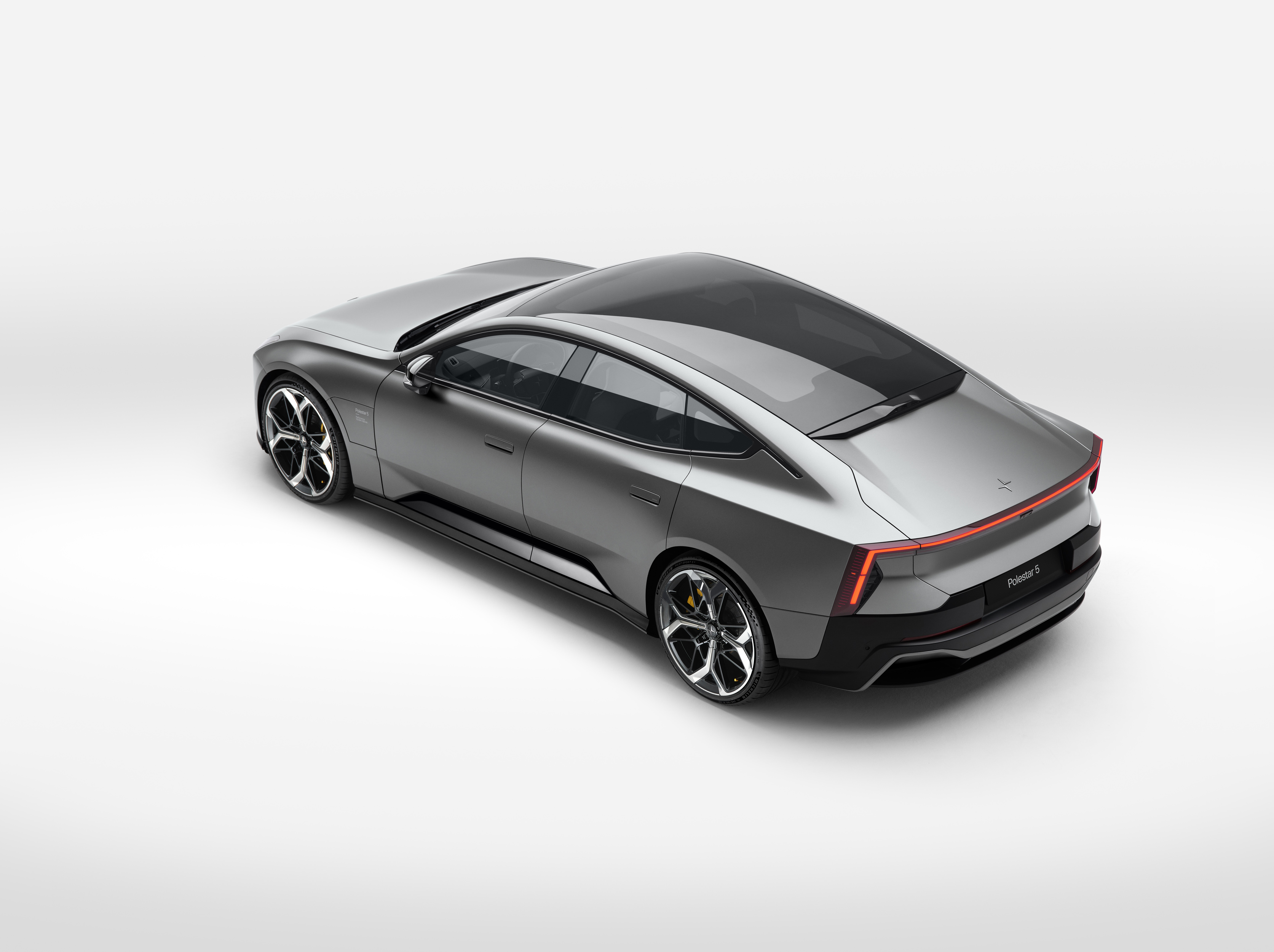
Polestar 5
Mini John Cooper Works concepts
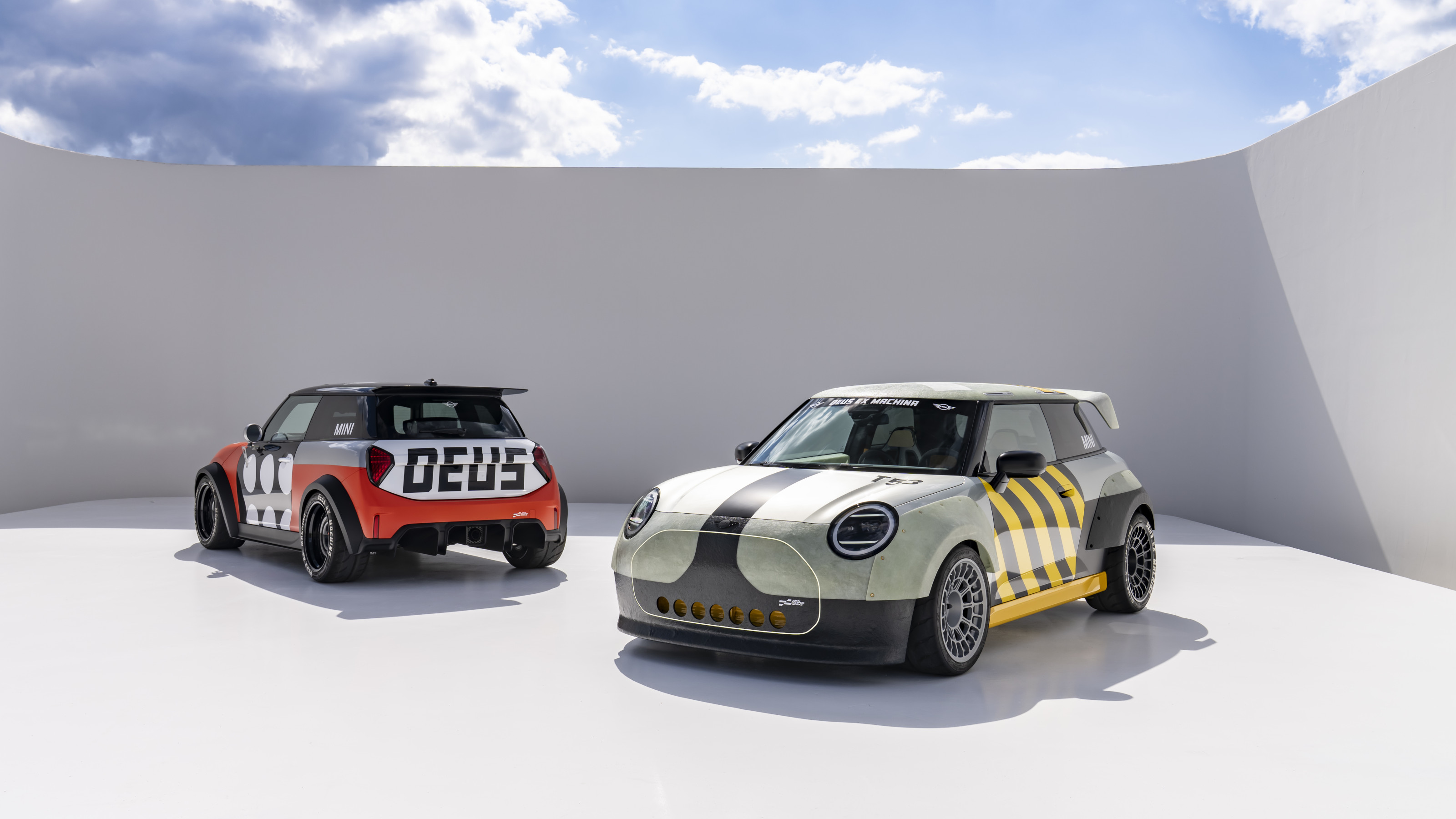
The Machina and The Skeg concepts by Mini John Cooper Works
Mini created a large-scale installation in the heart of Munich, complete with faux Tube station entrances and lots of lovely British clichés. When it came to cars, the BMW offshoot chose to present a collaboration with the lifestyle brand Deus Ex Machina, which resulted in two one-off John Cooper Works cars, dubbed The Machina and The Skeg.
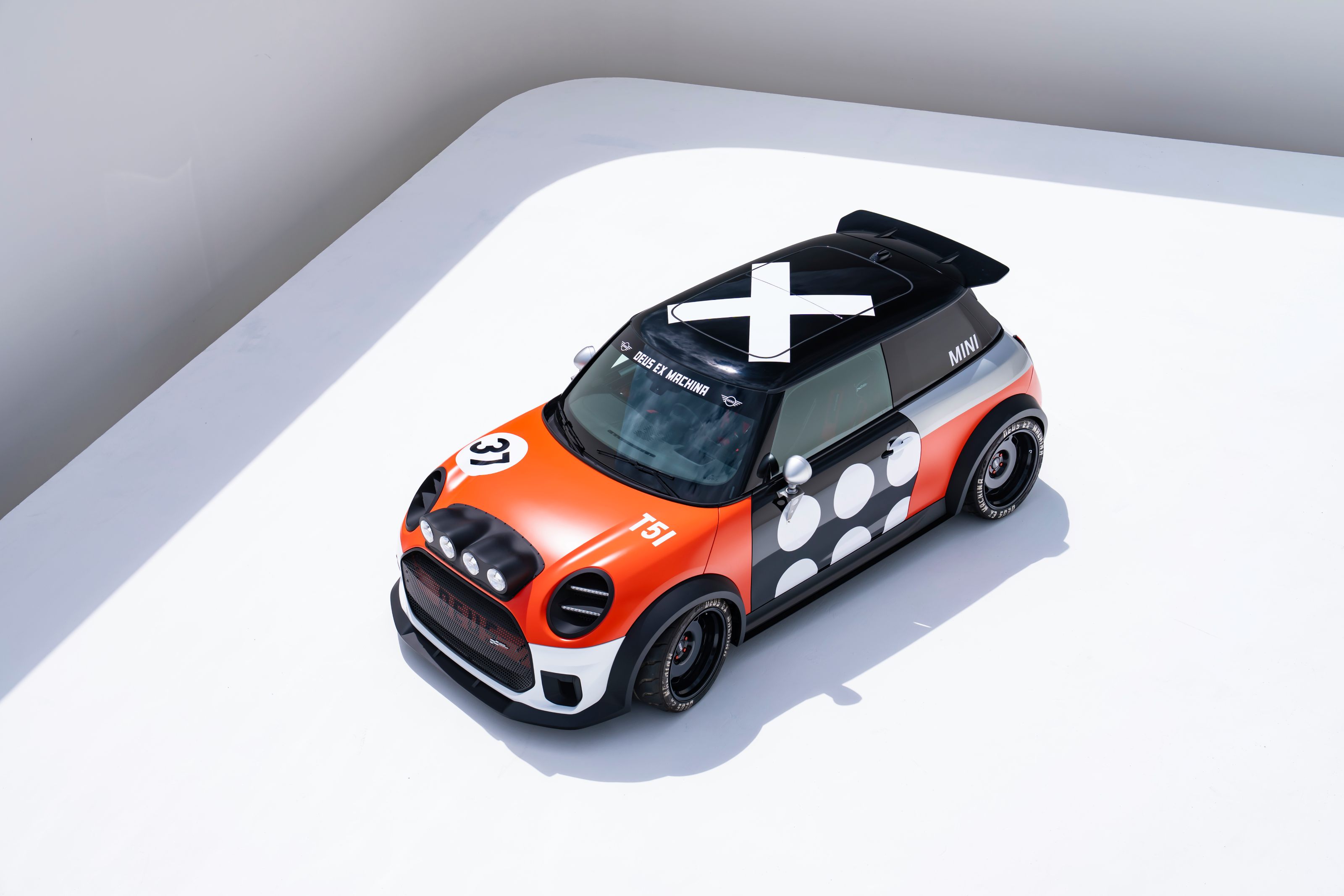
Mini JCW The Machina concept
Drawing influences from drag racing and surf culture, the two concepts are full-blooded race cars and have inspired a capsule collection from the brand. Asymmetric styling cues and liveries are coupled with spoilers and slick tyres, with one car celebrating EV power and the other traditional ICE.
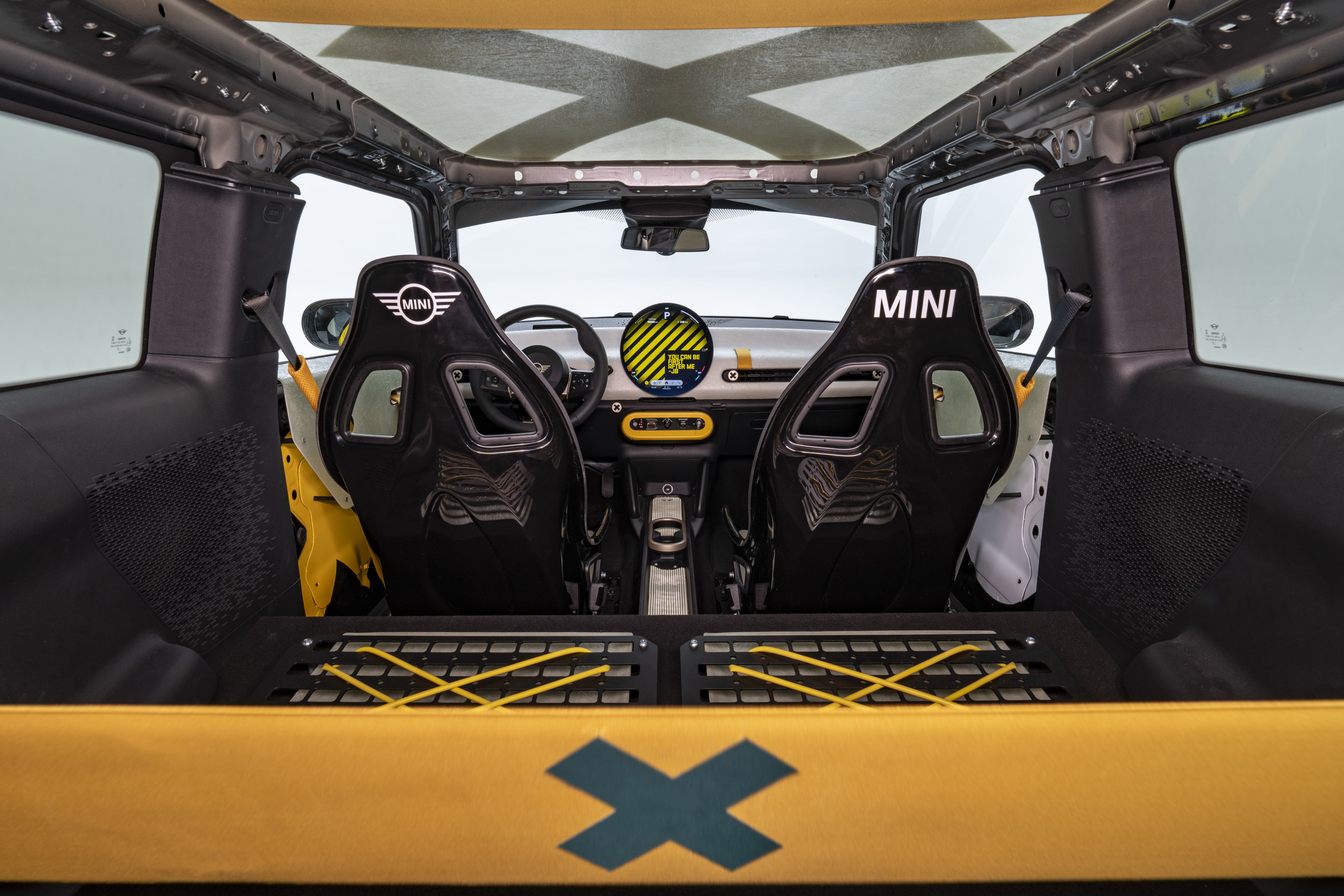
Inside the Mini JCW The Skeg concept
Renault Clio
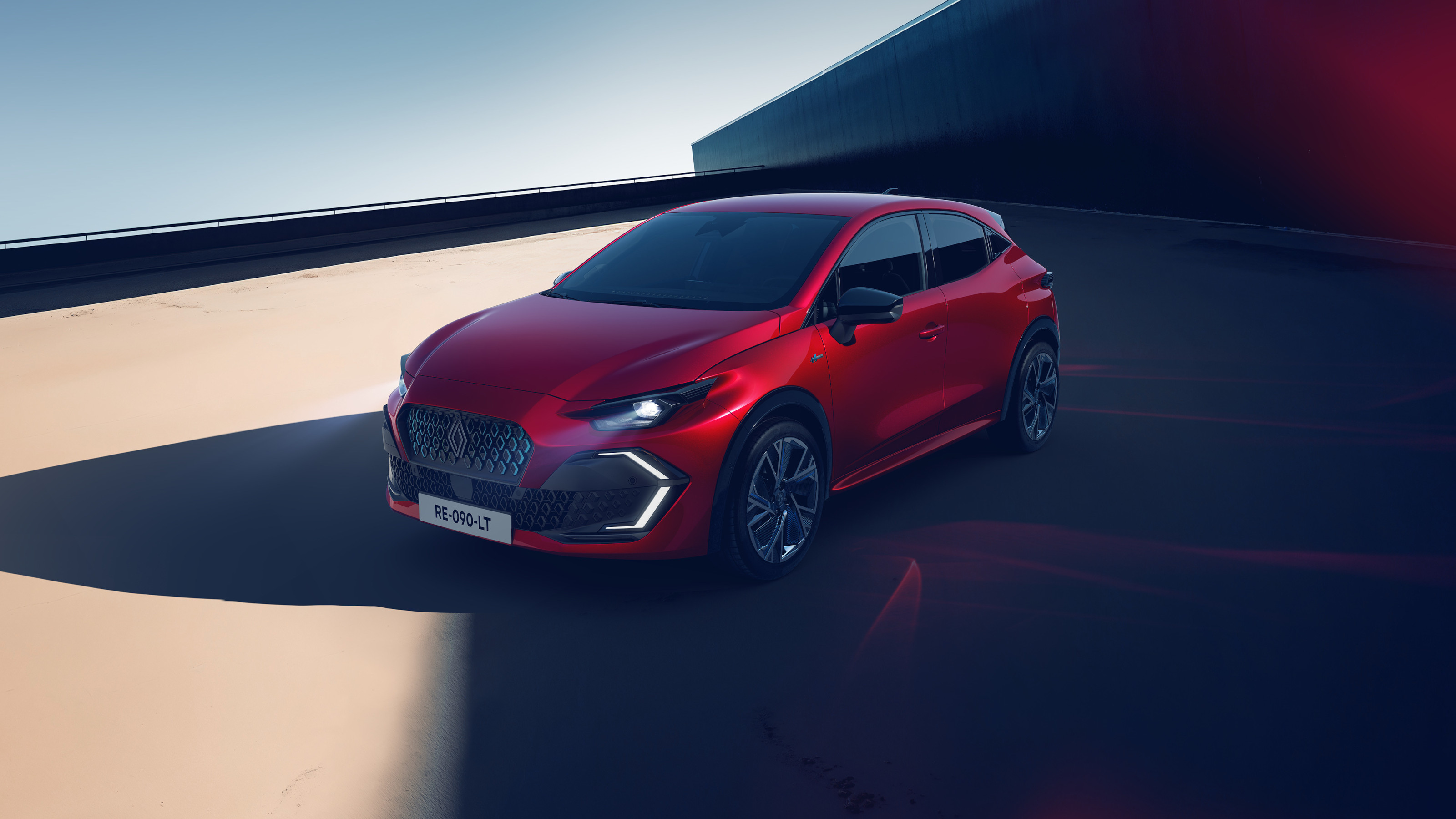
New Renault Clio
The Clio is an important car for Renault, even though most of the company’s recent attention has focused on the 4 and the 5. The Clio was a mainstay for many years, and now the compact car is back, this time with a hybrid powertrain. The sixth generation of this popular small car is actually larger than ever before and shares several interior elements with the 4 and 5 models.
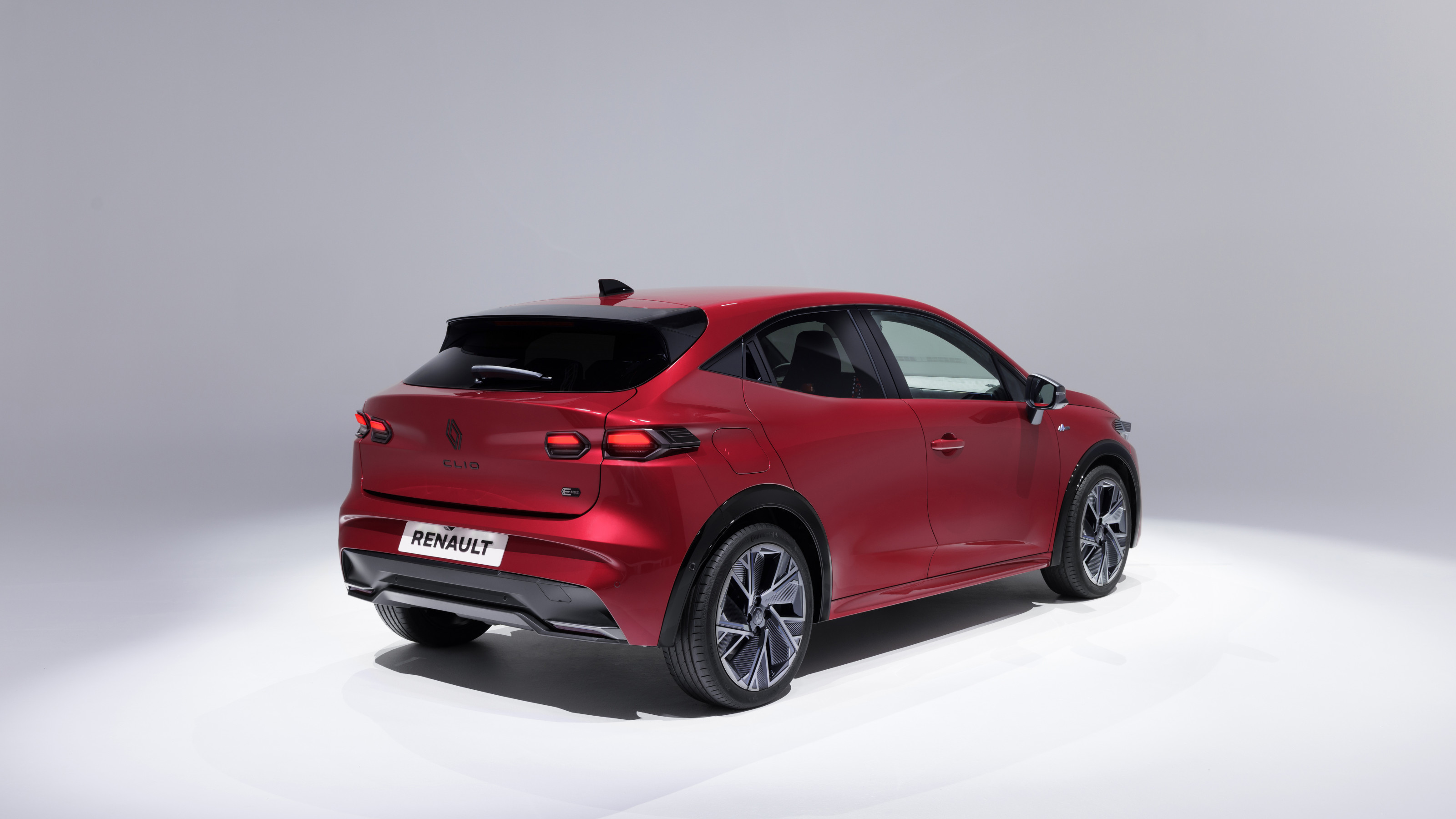
New Renault Clio
There’s little evidence of retro design here, however, with a more aggressive front-end styling. Despite the hybrid power, it’s still a light car by modern standards, and should be impressively economical as a result.
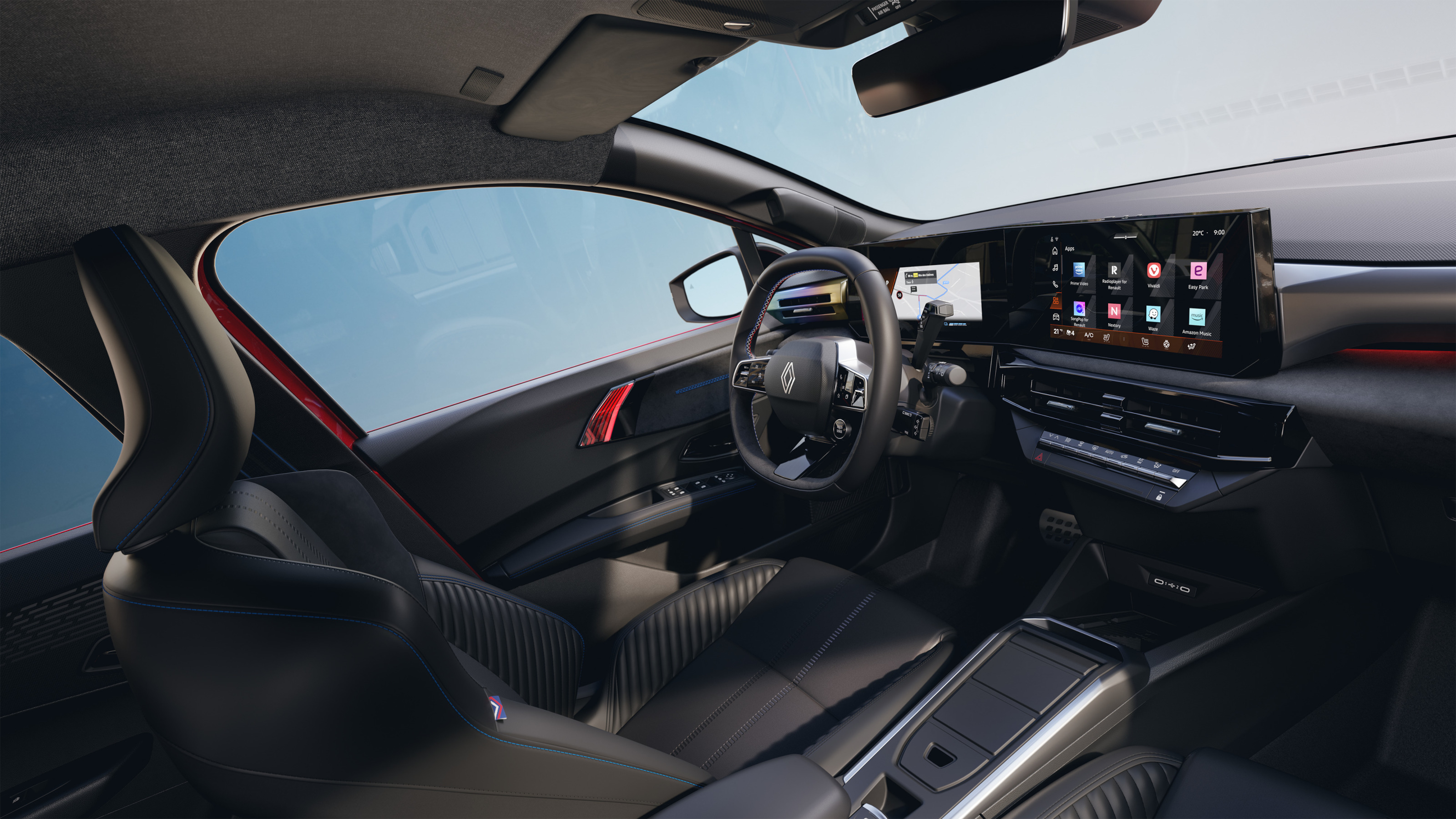
New Renault Clio interior
Škoda Vision O
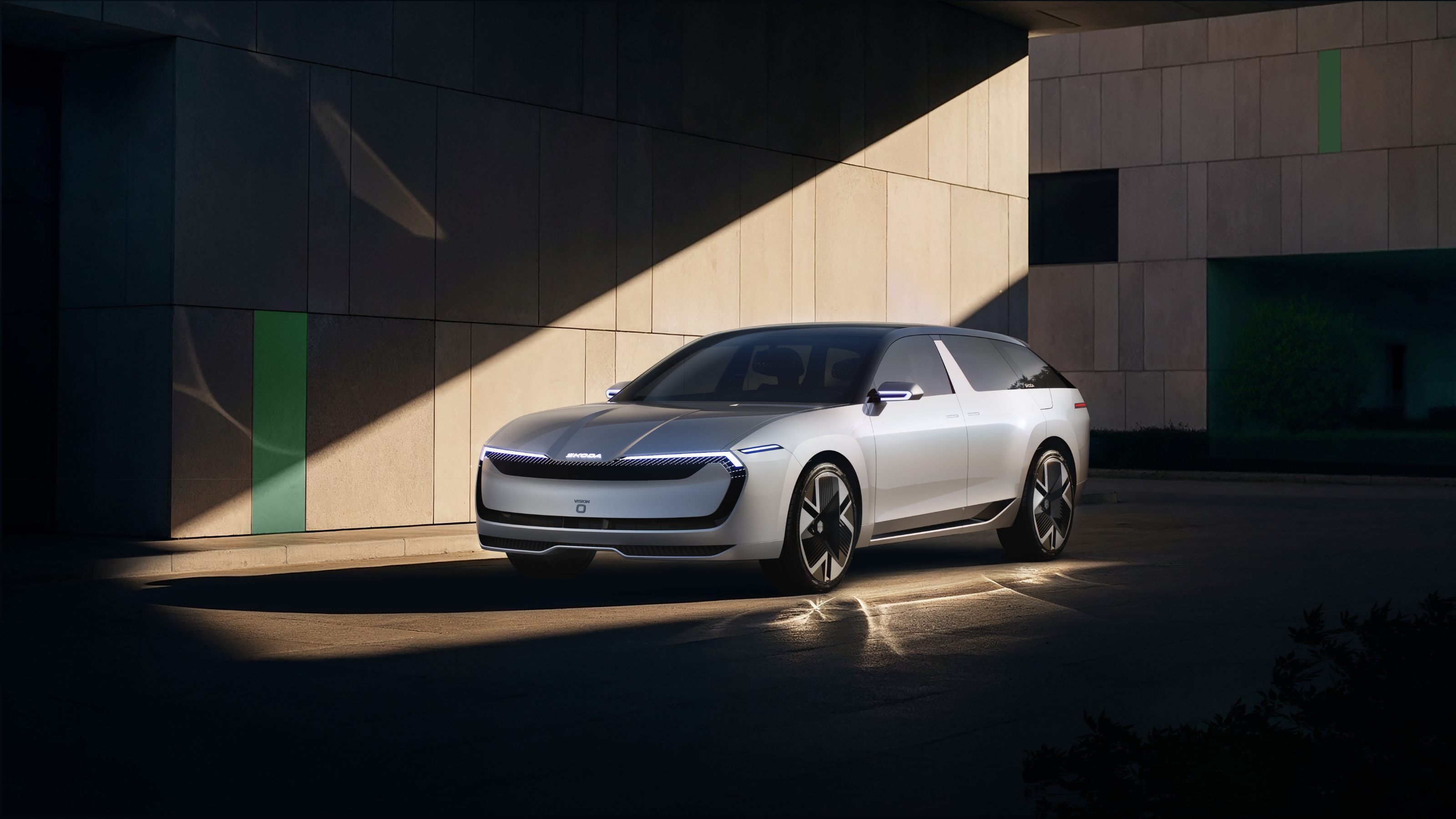
Škoda Vision O concept
We see hints of the 1954 Chevrolet Corvette Nomad in Škoda’s brave Vision O estate car concept. At a time when the practical, elegant estate has been all but decimated by the SUV, the brand’s decision to double down and reinvigorate the segment is a welcome one.
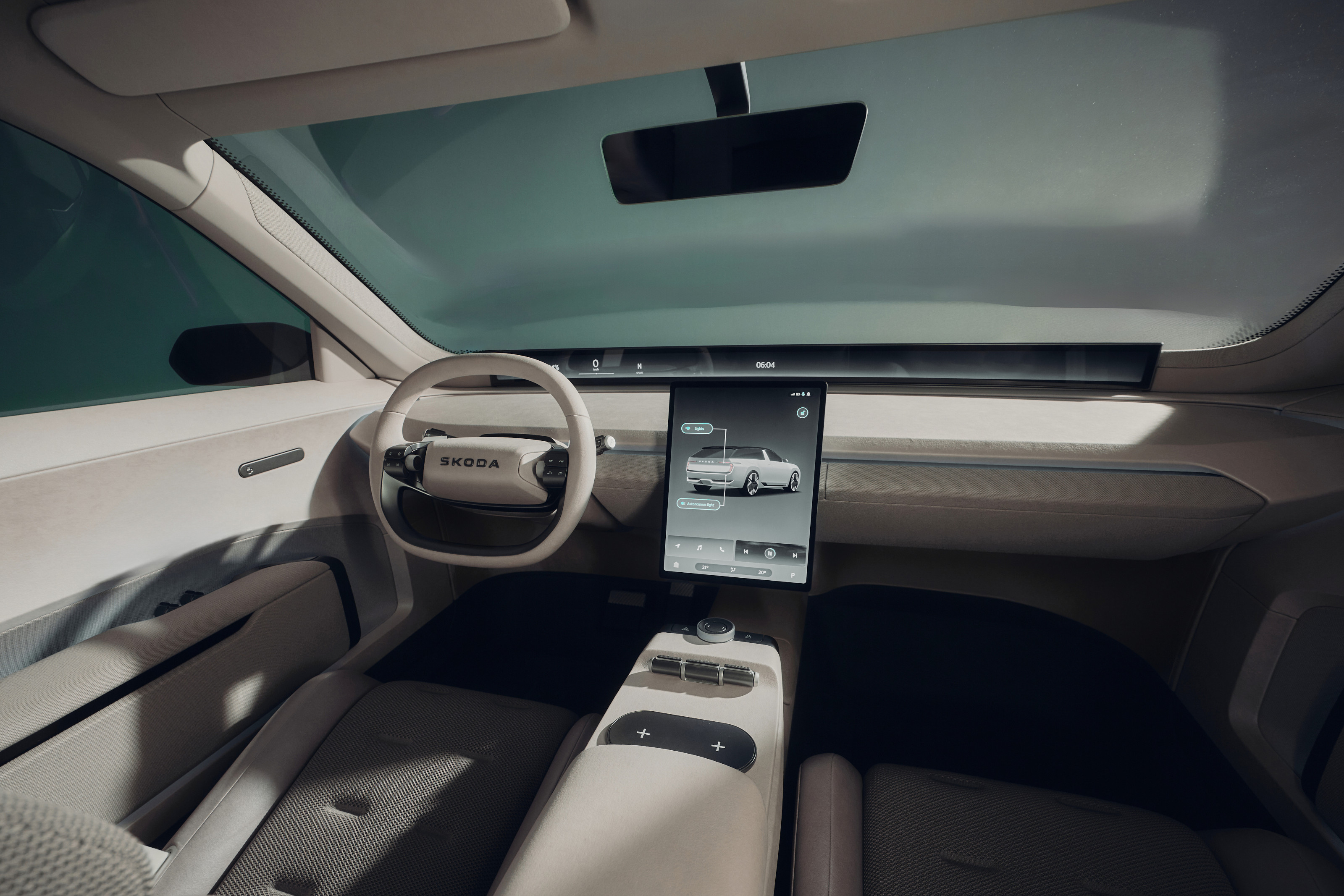
Škoda Vision O concept interior
Look beyond those very conceptual doors and you’ll see a finely proportioned wagon that combines Škoda’s playful but practical approach with a new design language, ‘Modern Solid’. The dashboard gets the two-screen set-up also seen in BMW’s iX3, with the upper level dubbed the ‘Škoda Horizon Display’, while there’s also a softer, more natural approach to interior materials and aesthetics, as well as ‘Bio-Adaptive Lighting’ that uses natural light cycles to keep occupants feeling fresh and alert.
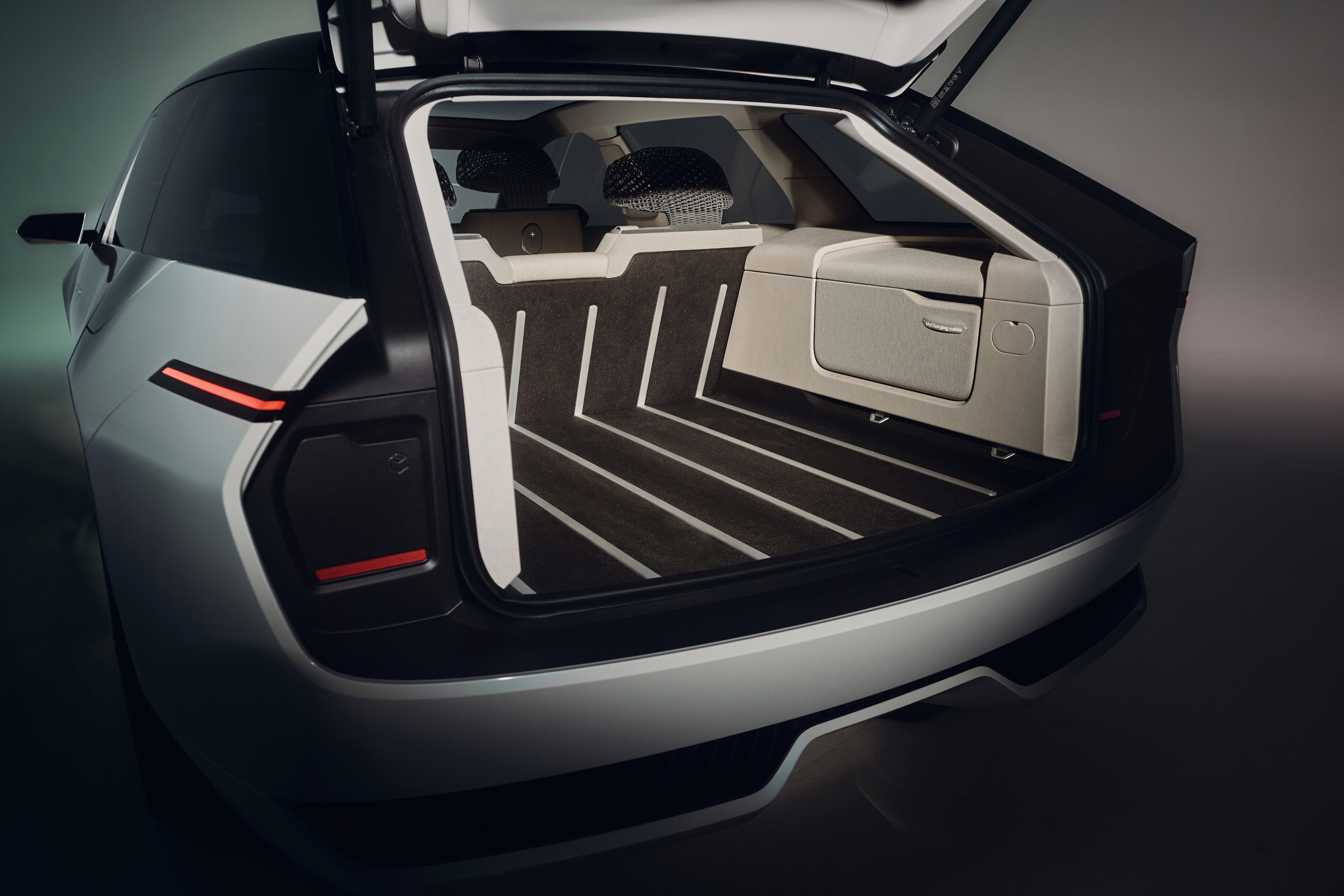
Škoda Vision O concept interior
As well as 650 litres of luggage capacity, the Vision O also debuts new ‘Simply Clever’ features, the little design add-ons that have come to define Škoda’s attention to detail. The signature door-stowed umbrella is present and correct (no fewer than four of them), and the car incorporates a fridge as well as a detachable Bluetooth speaker.
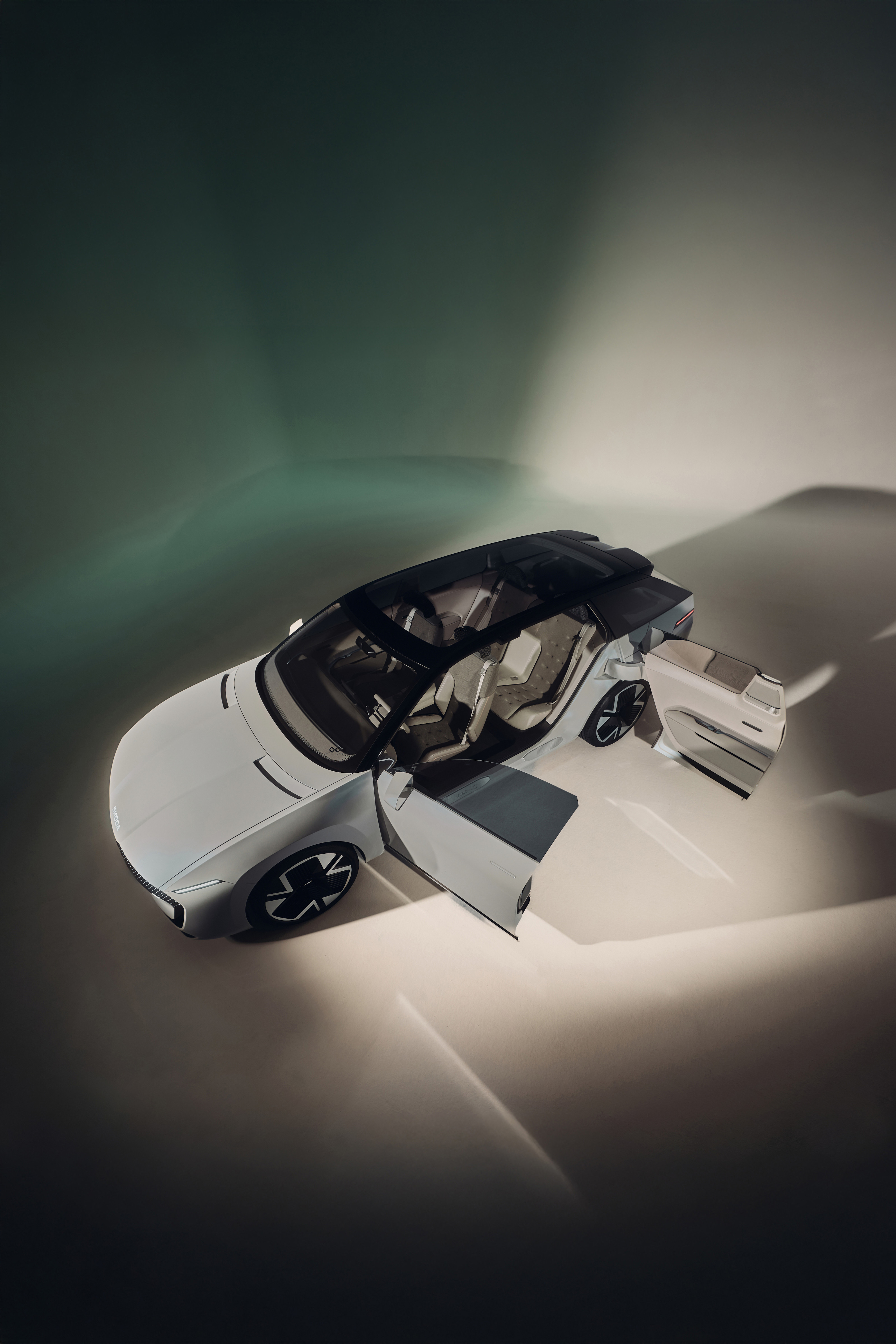
Škoda Vision O concept
Also on display was the new Škoda Epiq, a conceptual preview of the company’s contribution to VW’s quartet of compact all-electric city cars. Like its siblings, the Epiq will hit the streets in 2026, largely unchanged from the car you see here.
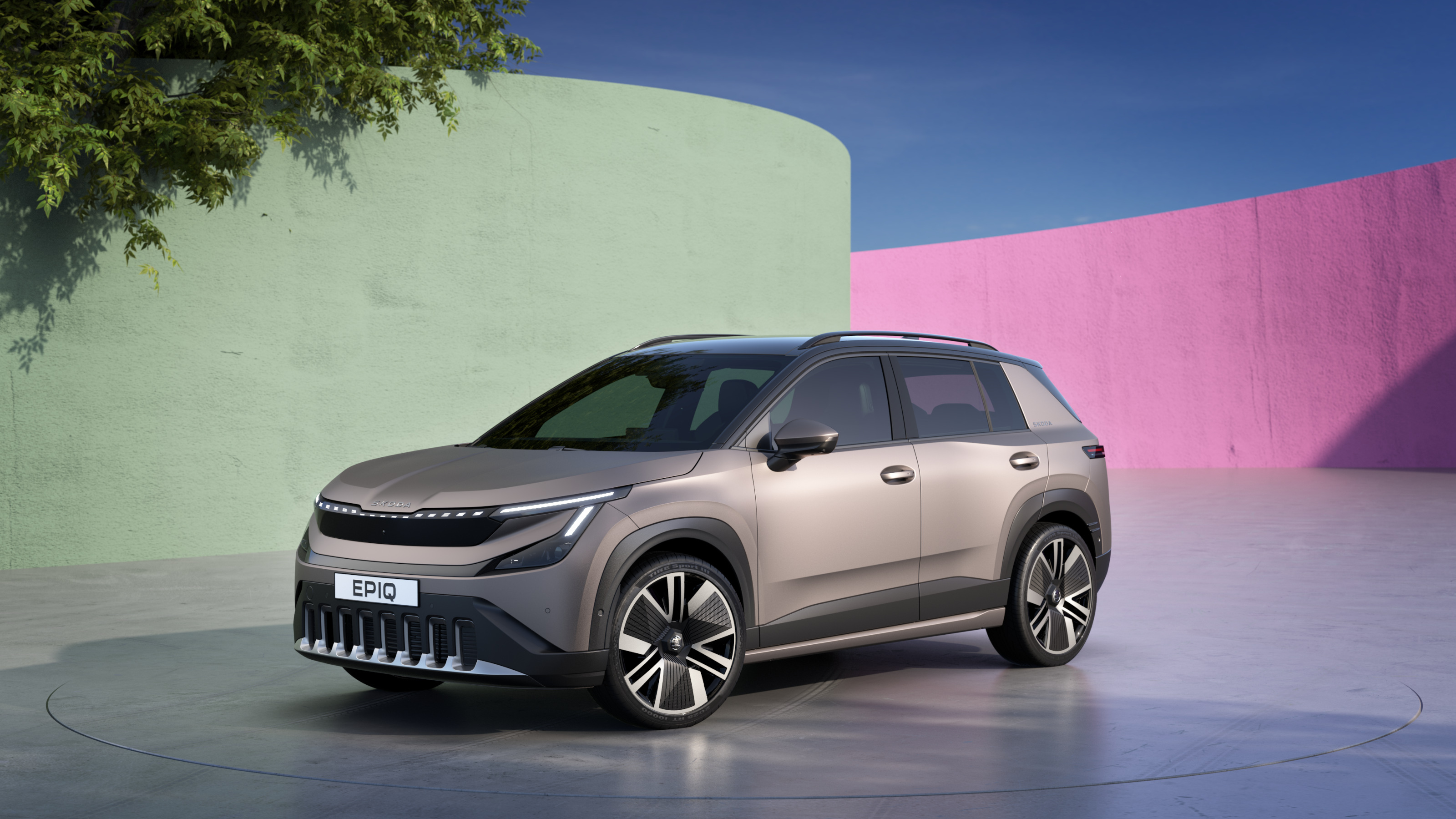
Škoda Epiq
With a low price, above average range for the sector (c.260 miles) and a spacious, functional interior, the Epiq will be the first production car to incorporate the Modern Solid design language and shows the brand hasn’t forgotten its functional, affordable roots.
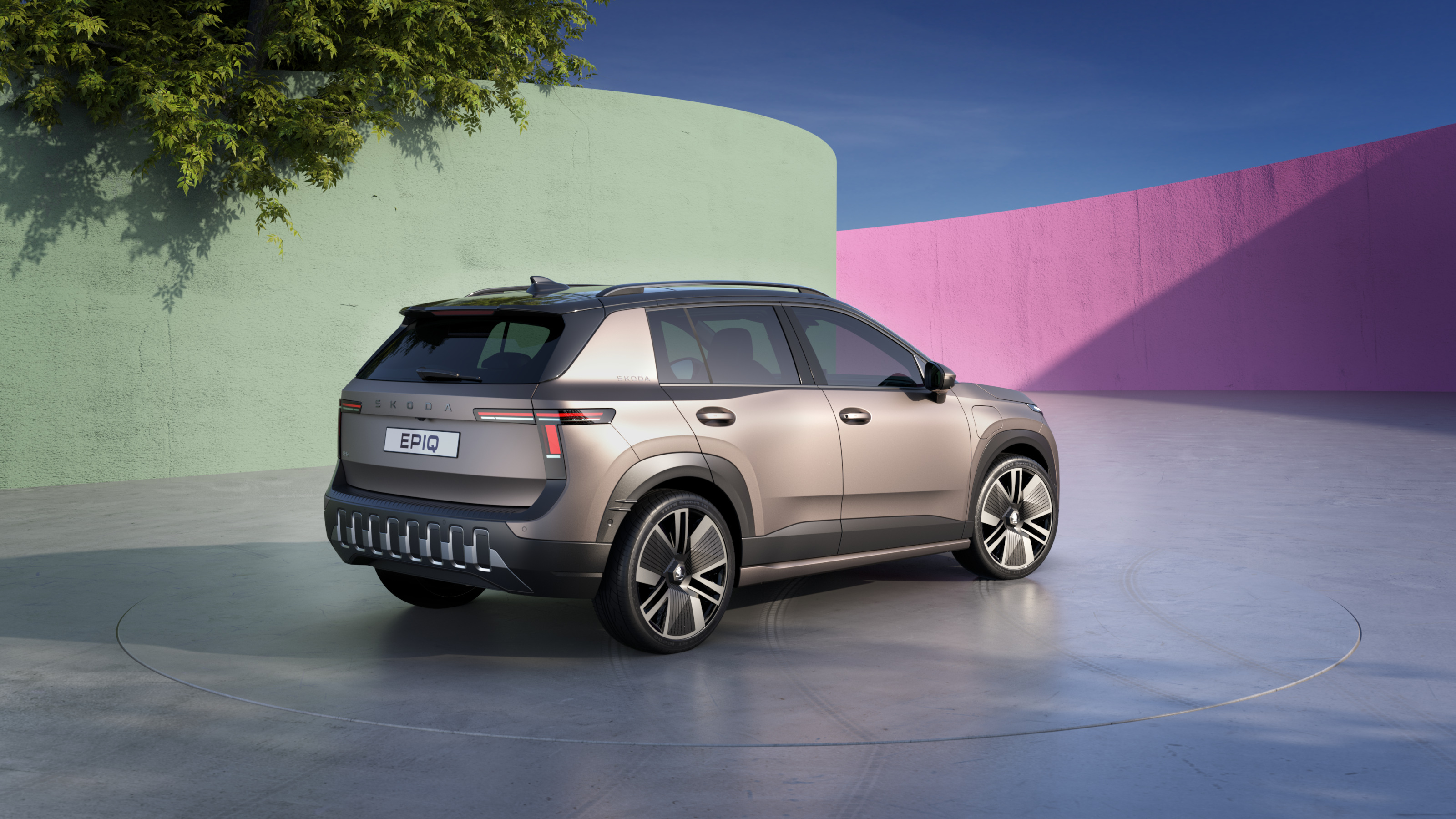
Hyundai Concept Three
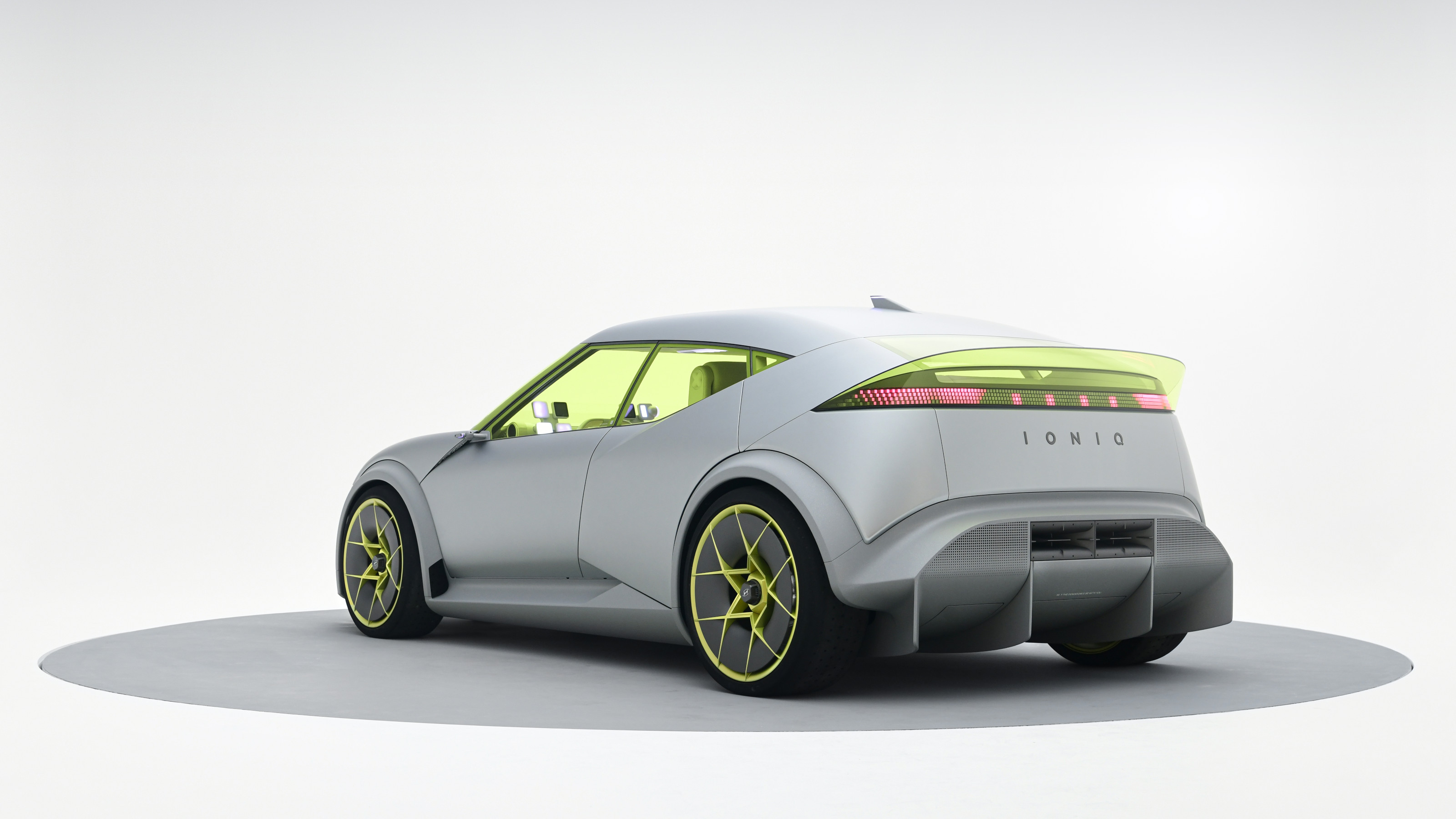
Hyundai Concept Three
This is the Concept Three, a preview of the next and smallest car to bear Hyundai’s Ioniq sub-brand EV badge. Expected to reach production as the Ioniq 3, if you overlook the tinted windows, lemon-yellow interior and purple highlights, you’ll see the fundamental silhouette of the next-gen compact car.
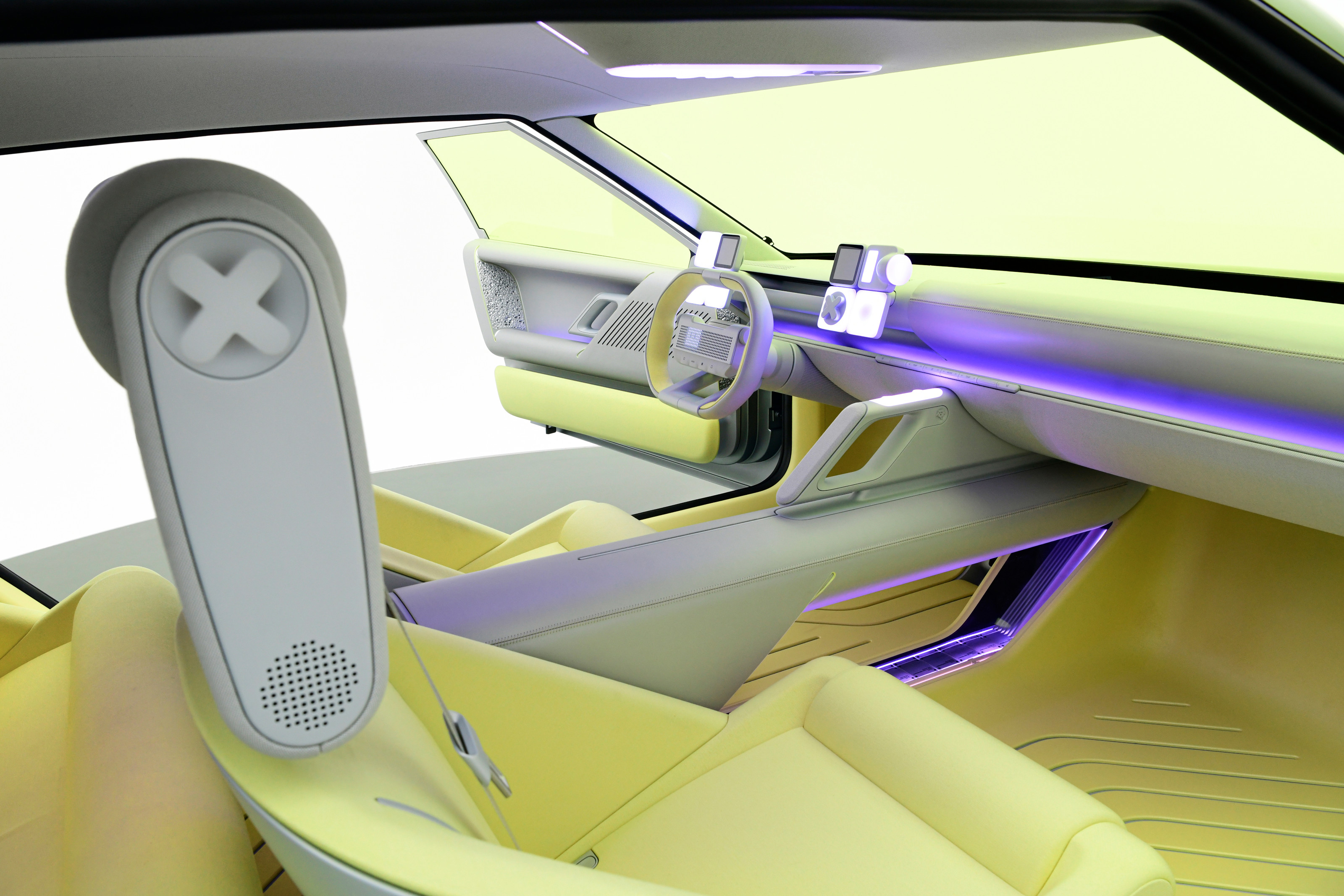
Hyundai Concept Three interior
The Three actually brought to mind the 2007 Hyundai HND-3 concept, which in turn reached production as the quirky and asymmetric Veloster in 2011. Both cars had an unusual door arrangement, something that’s carried through to this concept, with its coach rear door.
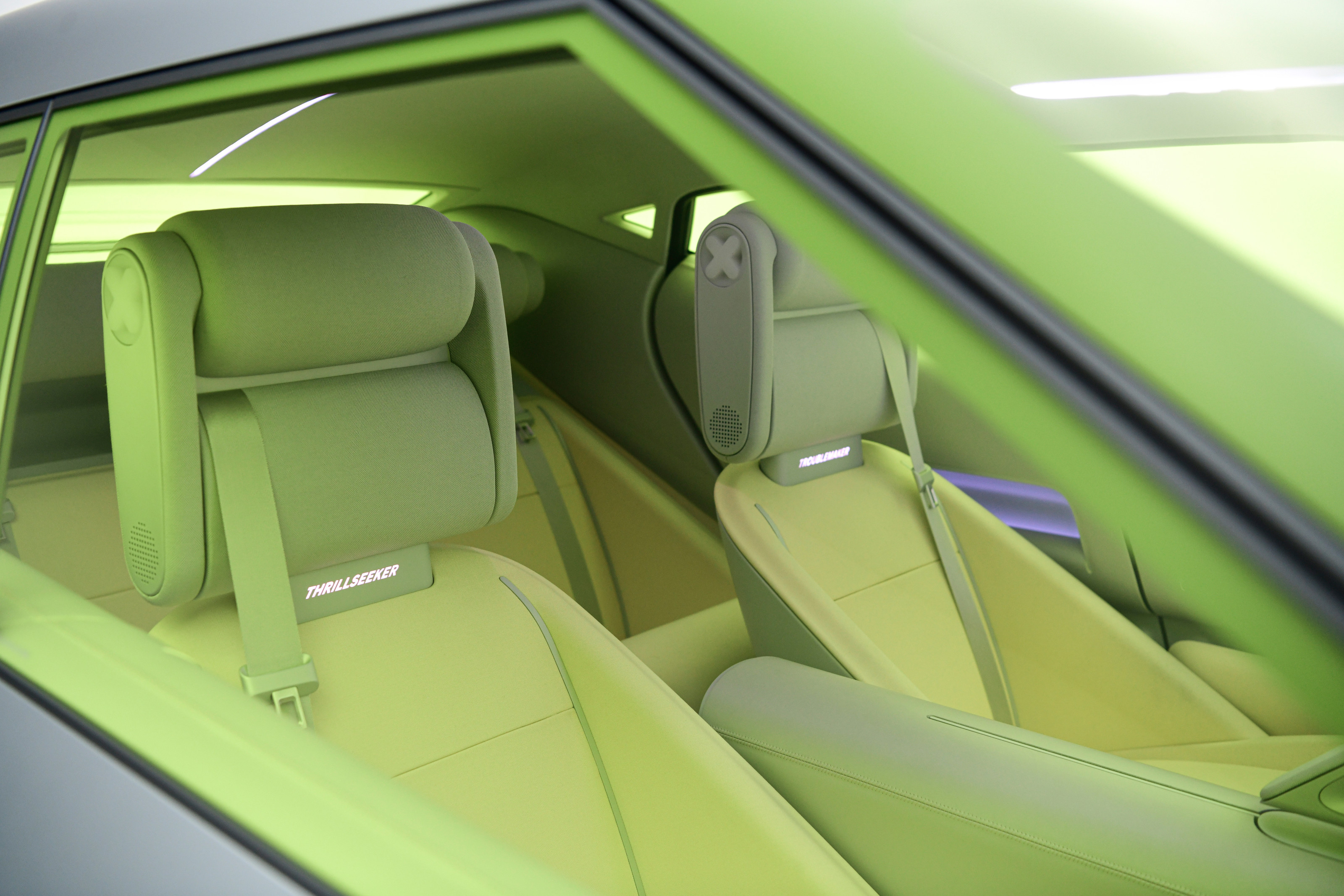
Hyundai Concept Three interior
The concept demonstrates what Hyundai is calling its ‘Art of Steel’ design language, doubling down on the industrial conglomerate’s impressive ability with the material, along with the Parametric Pixel detailing seen across the rest of the Ioniq range. All European EVs were on display at IAA Mobility 2025, as well as the Insteroid concept first shown at Seoul in the Spring.
Jonathan Bell has written for Wallpaper* magazine since 1999, covering everything from architecture and transport design to books, tech and graphic design. He is now the magazine’s Transport and Technology Editor. Jonathan has written and edited 15 books, including Concept Car Design, 21st Century House, and The New Modern House. He is also the host of Wallpaper’s first podcast.